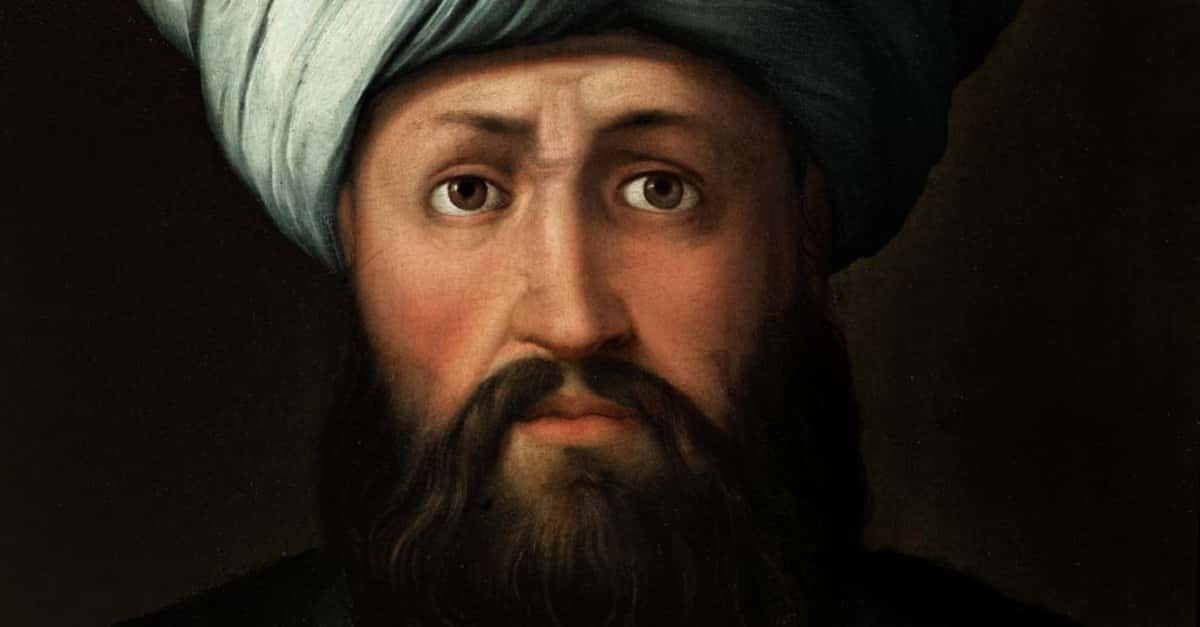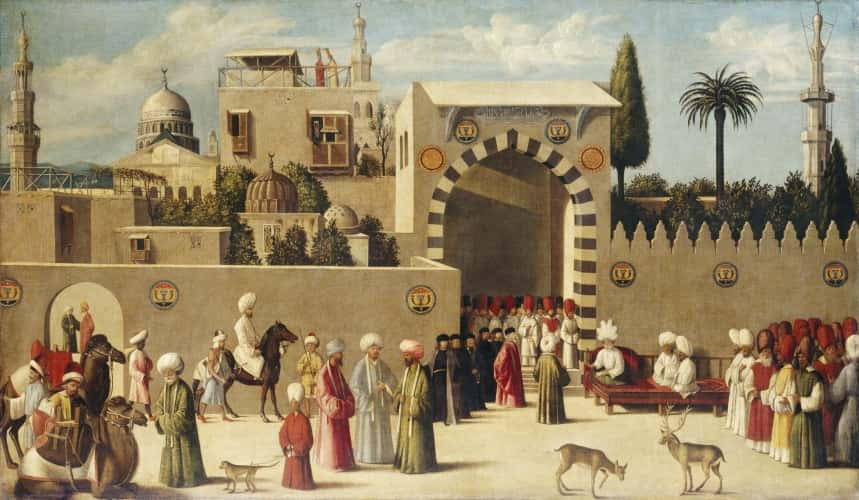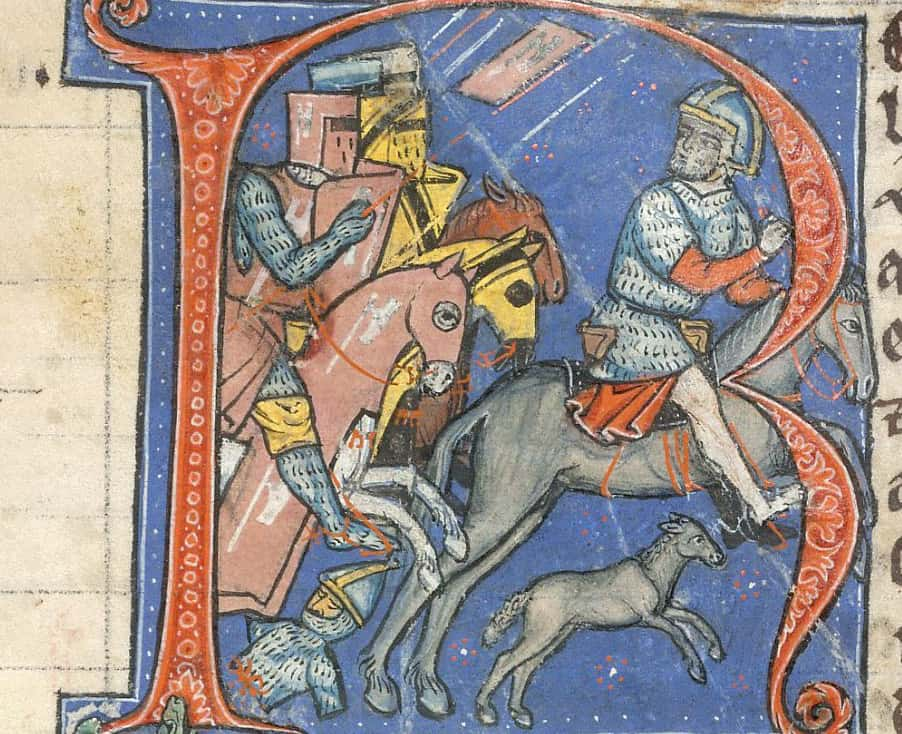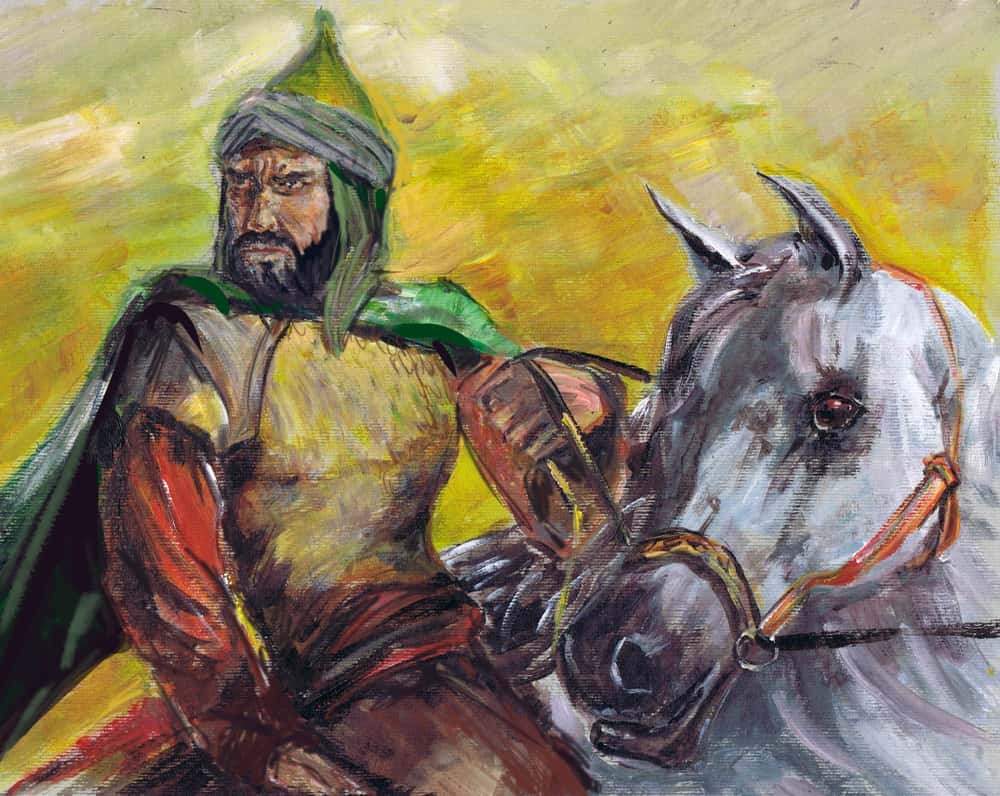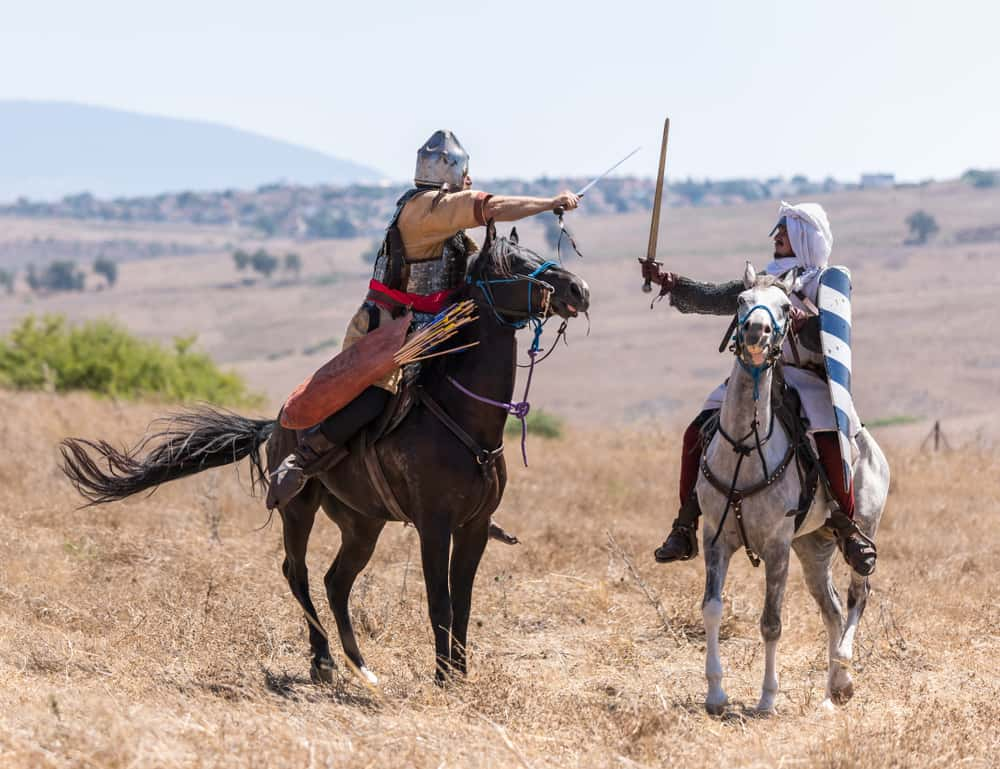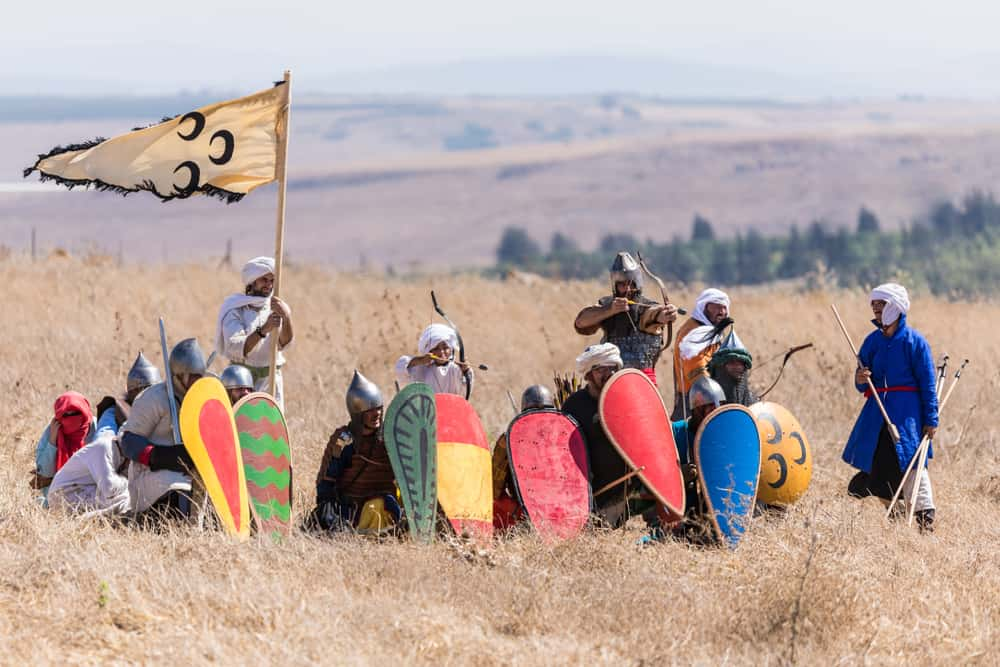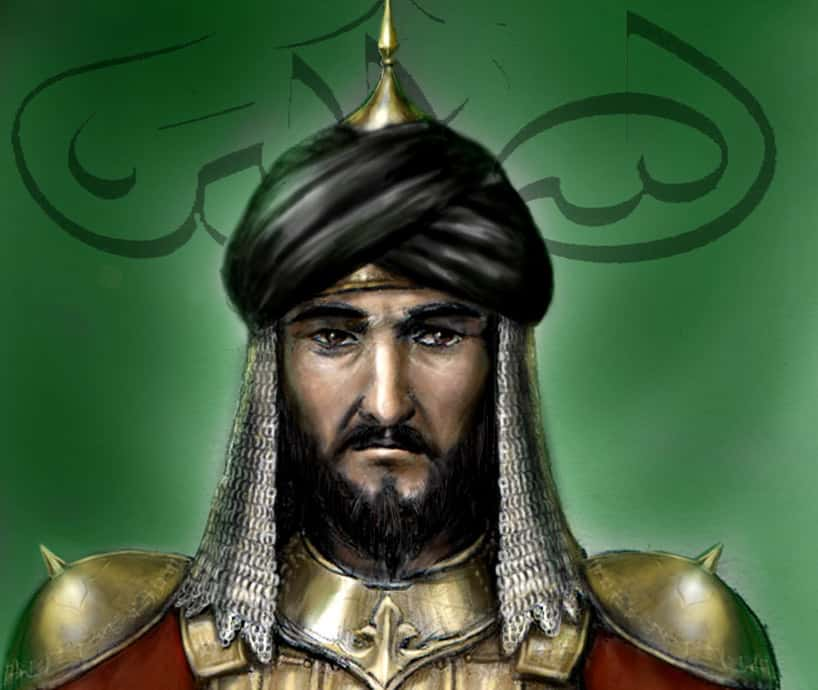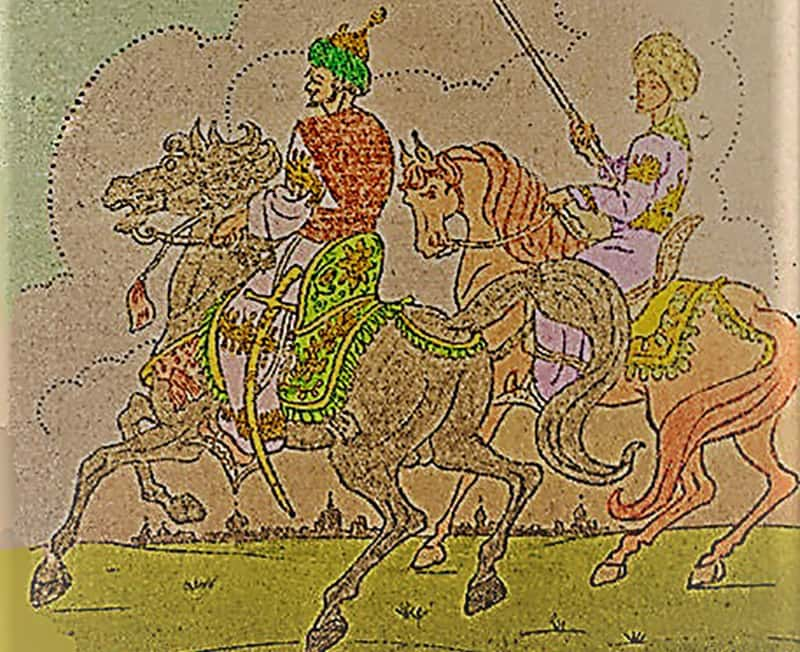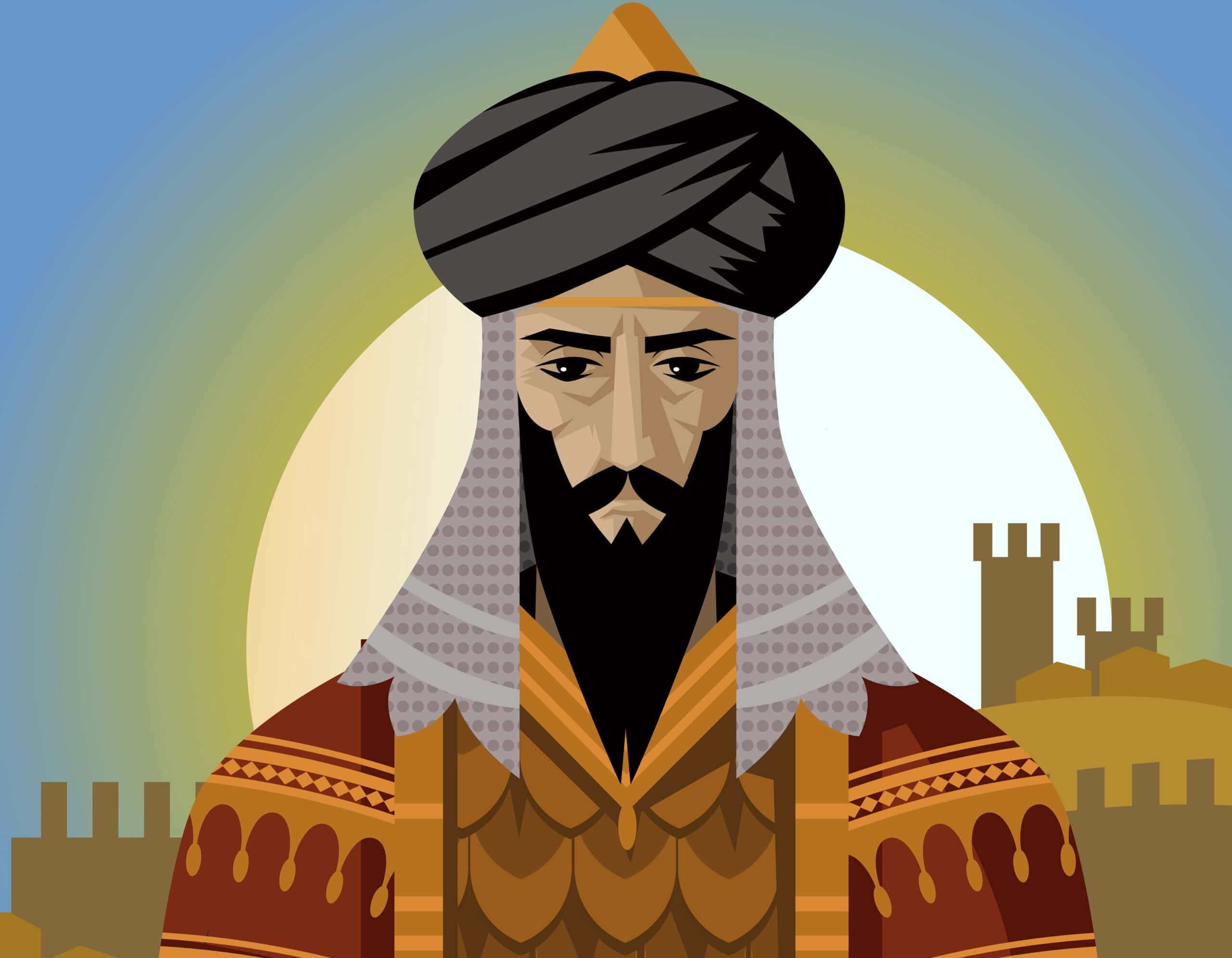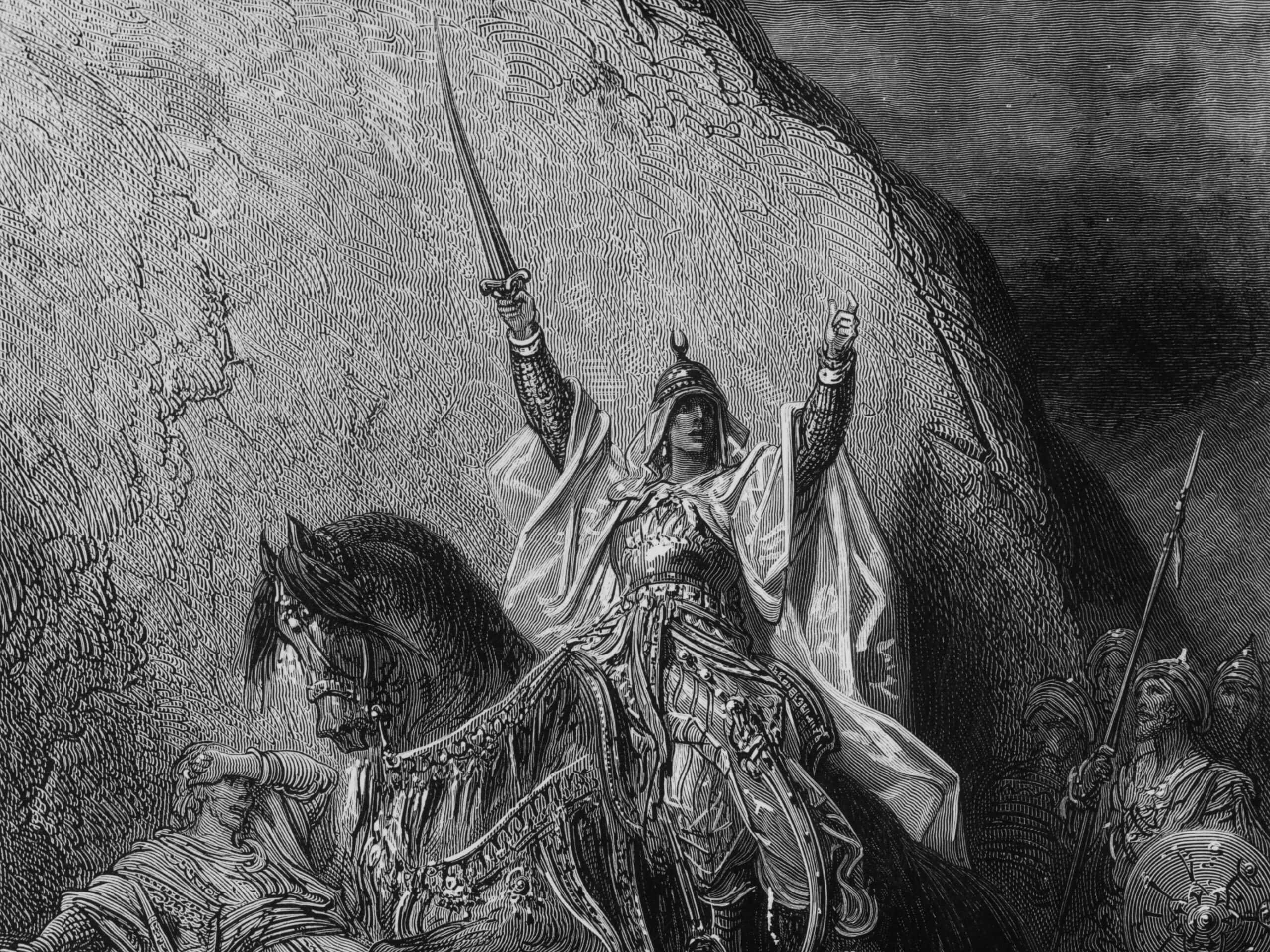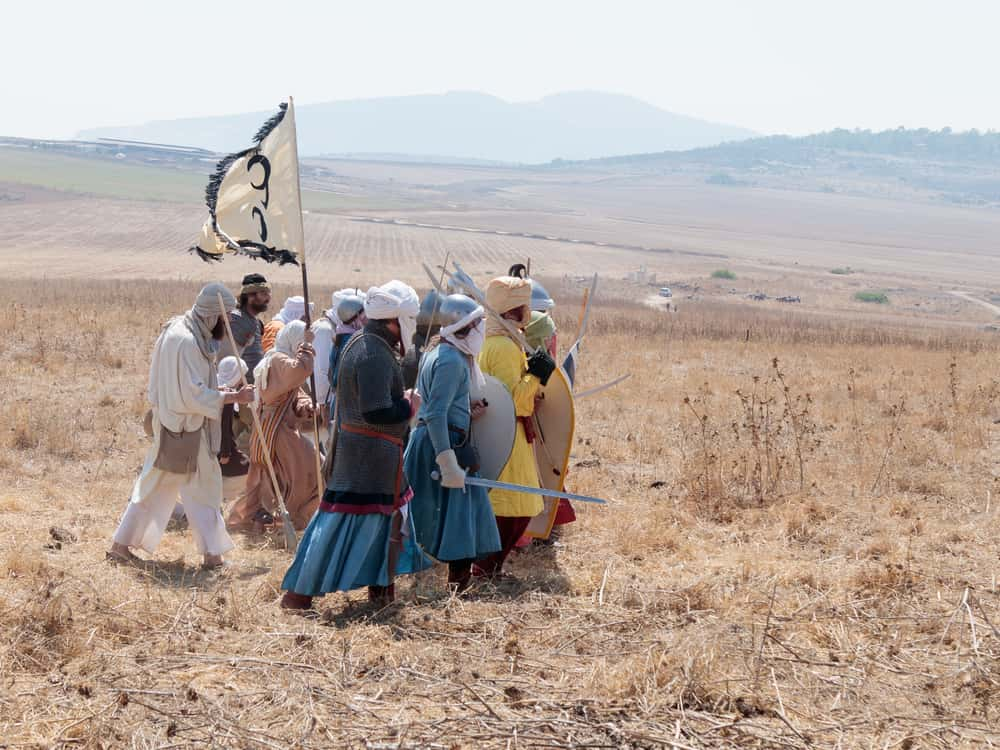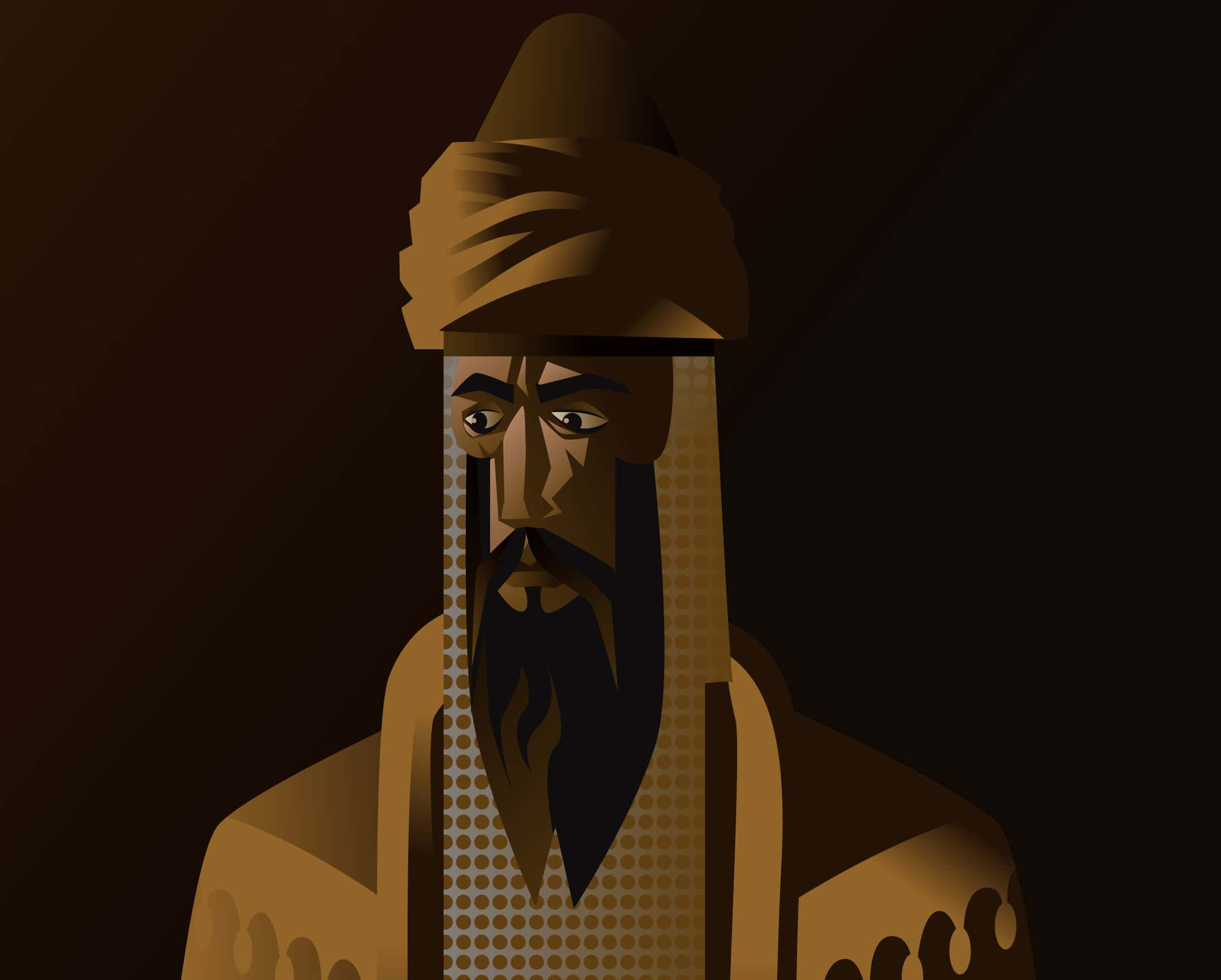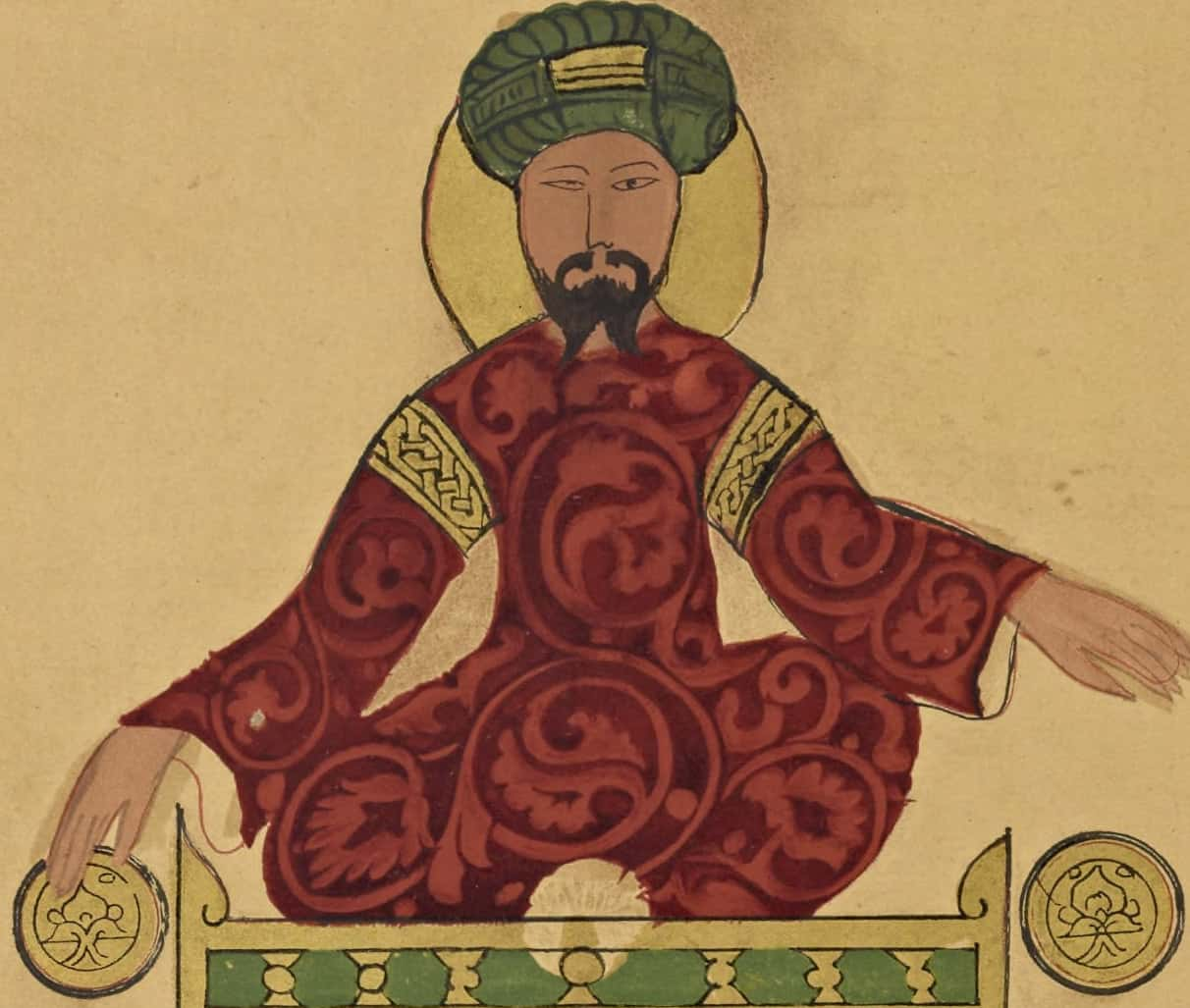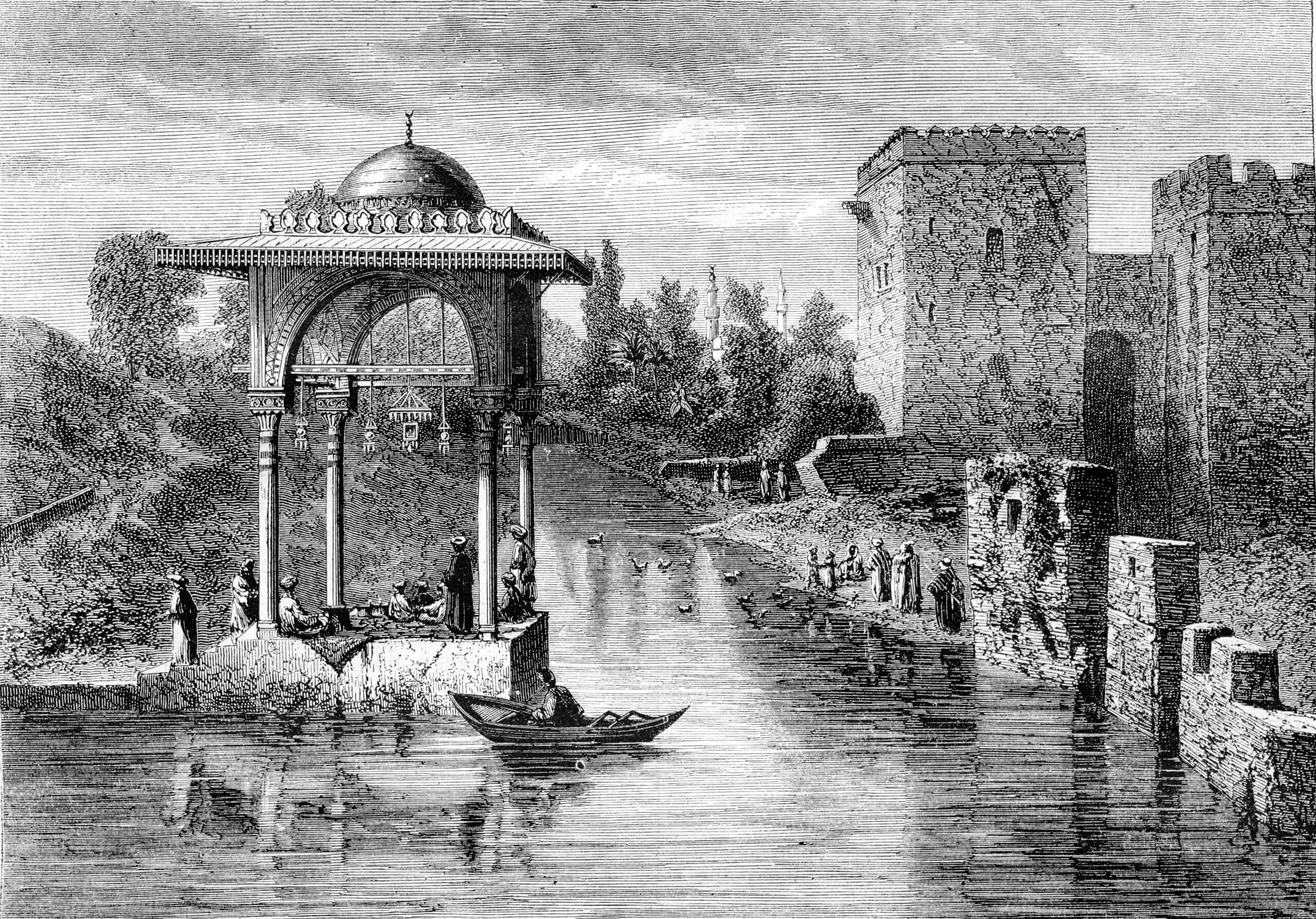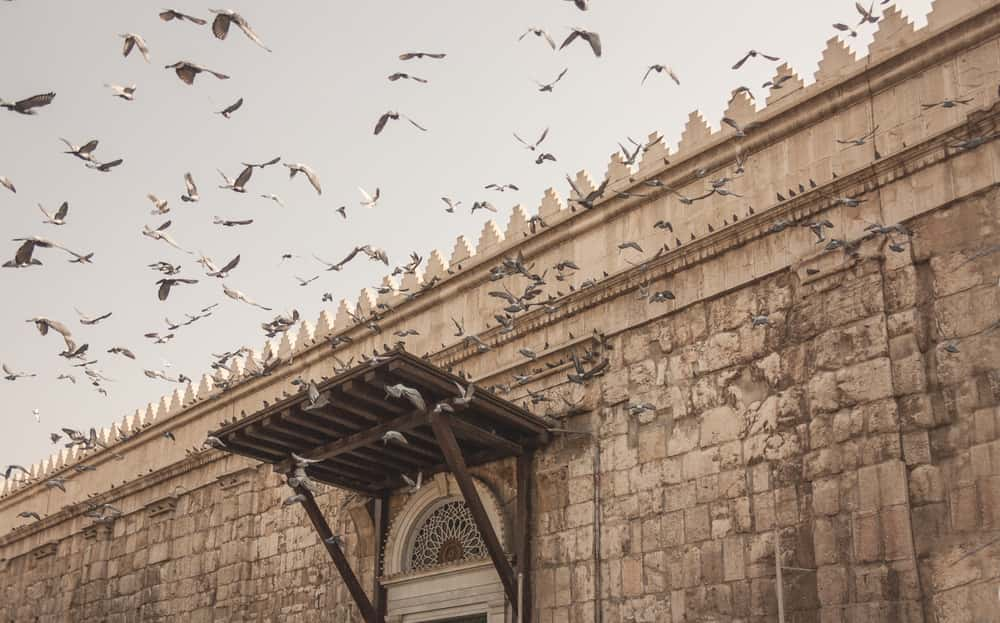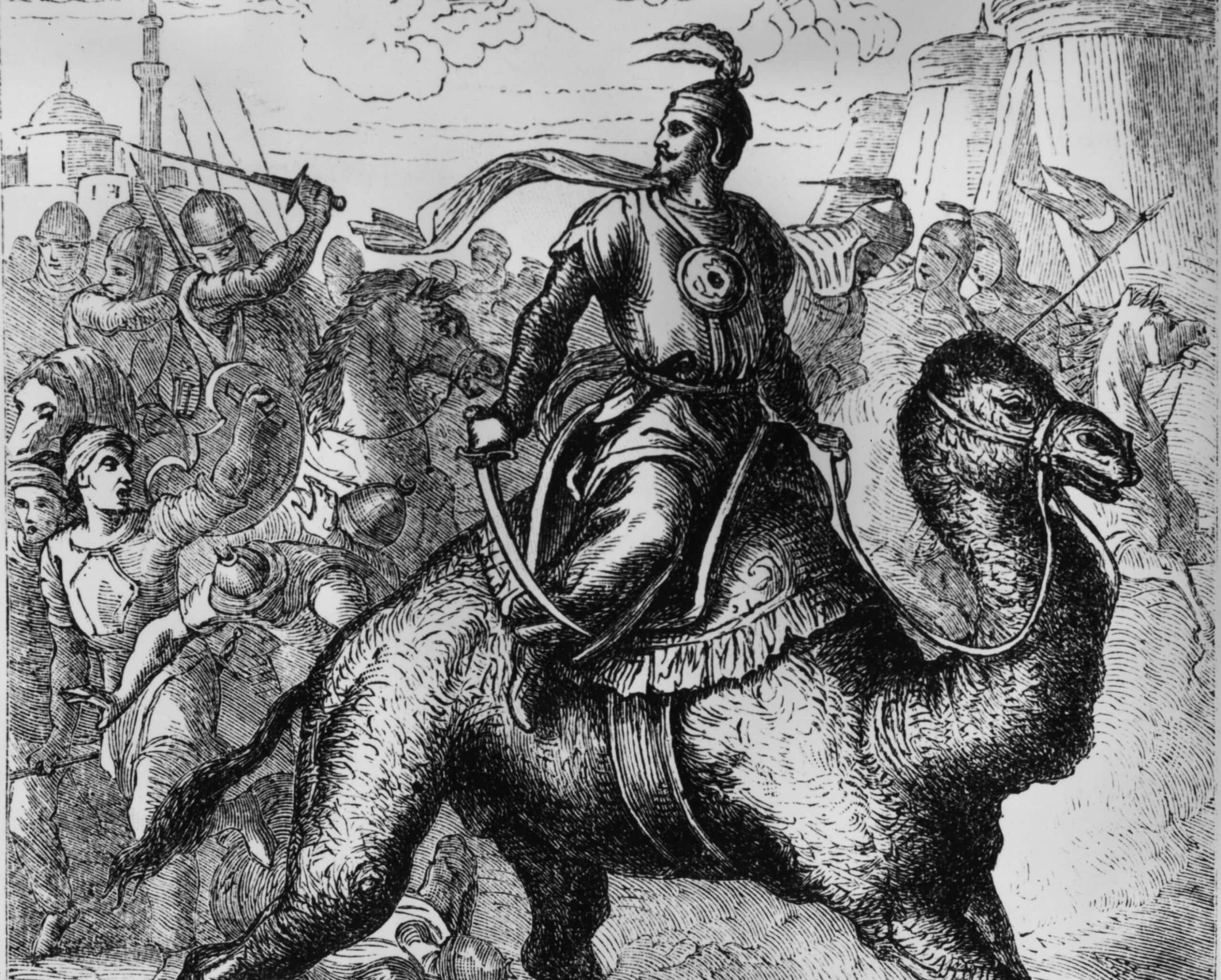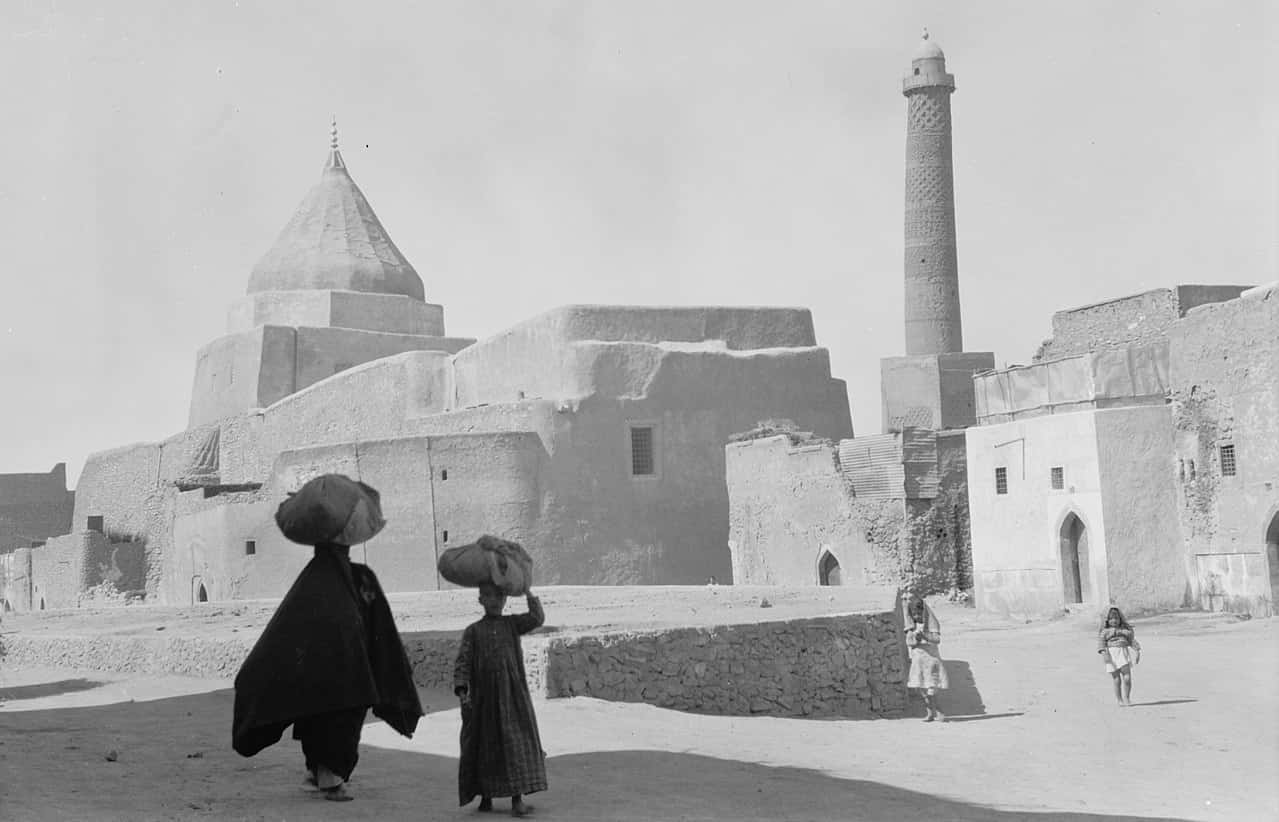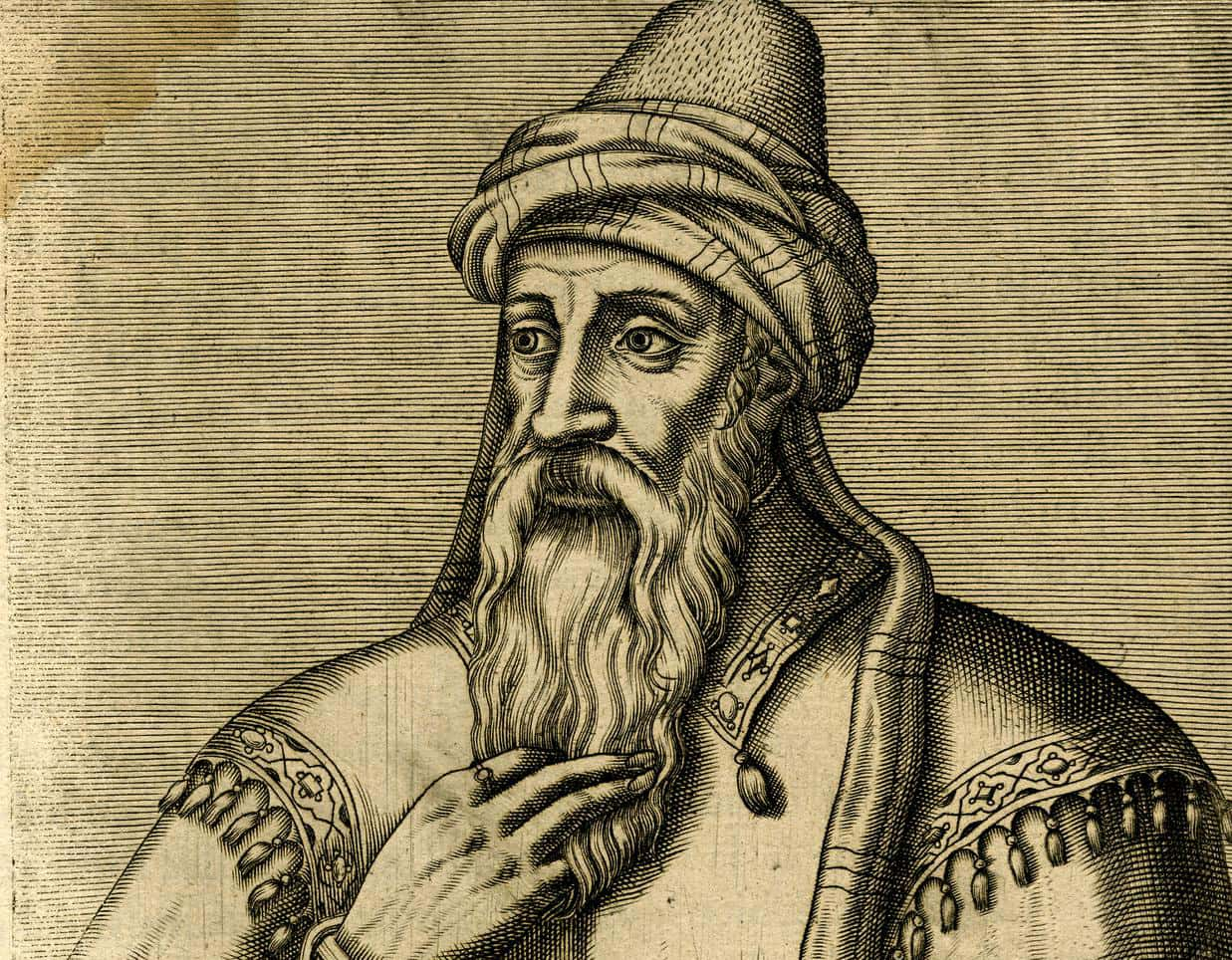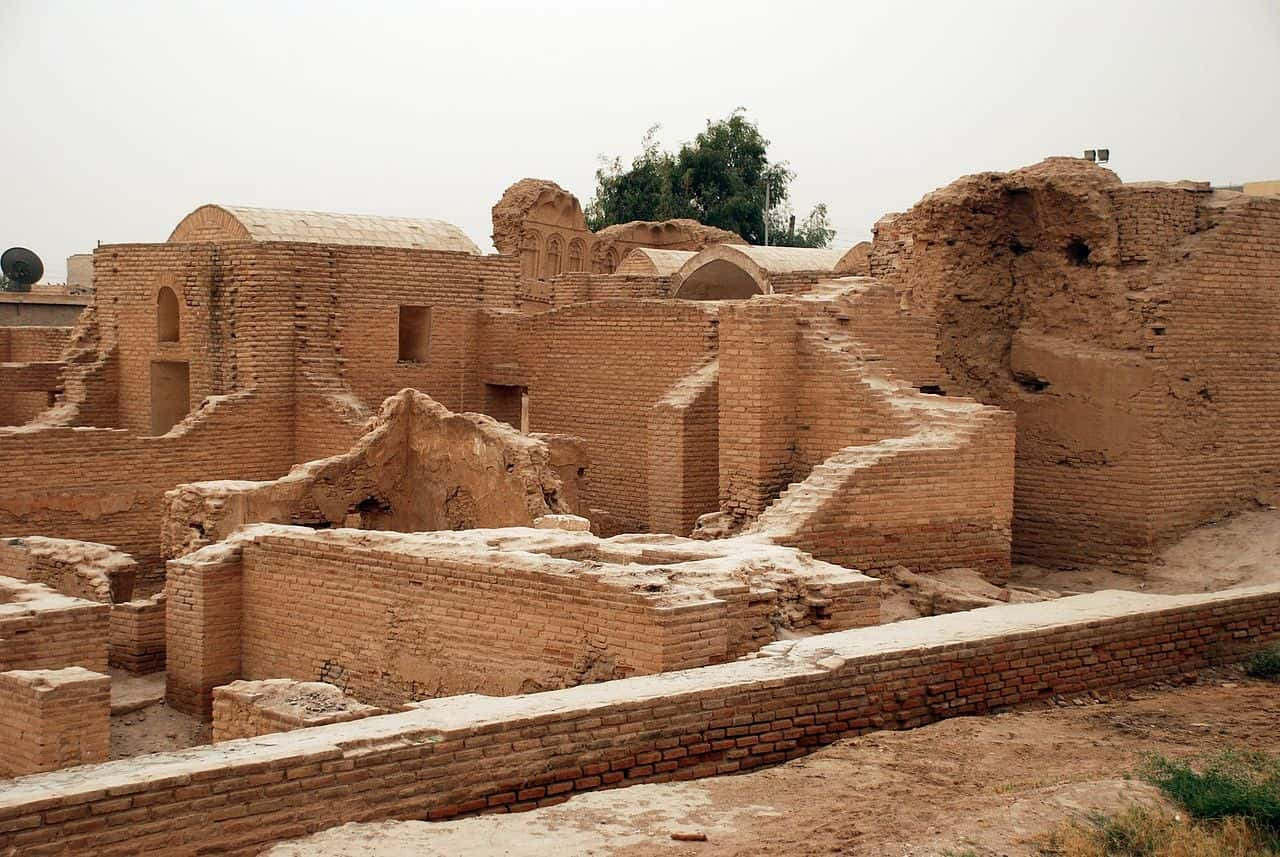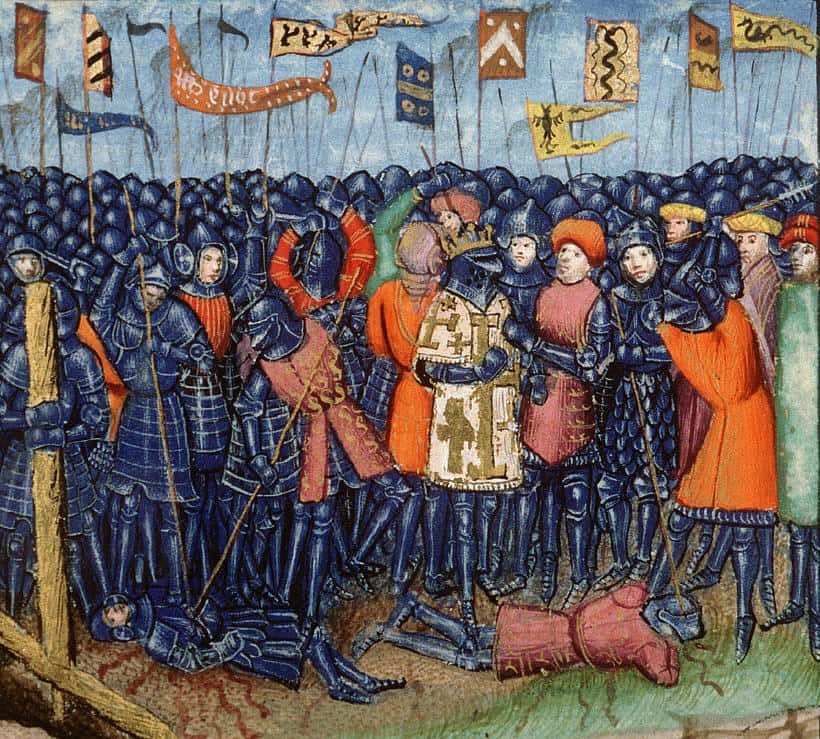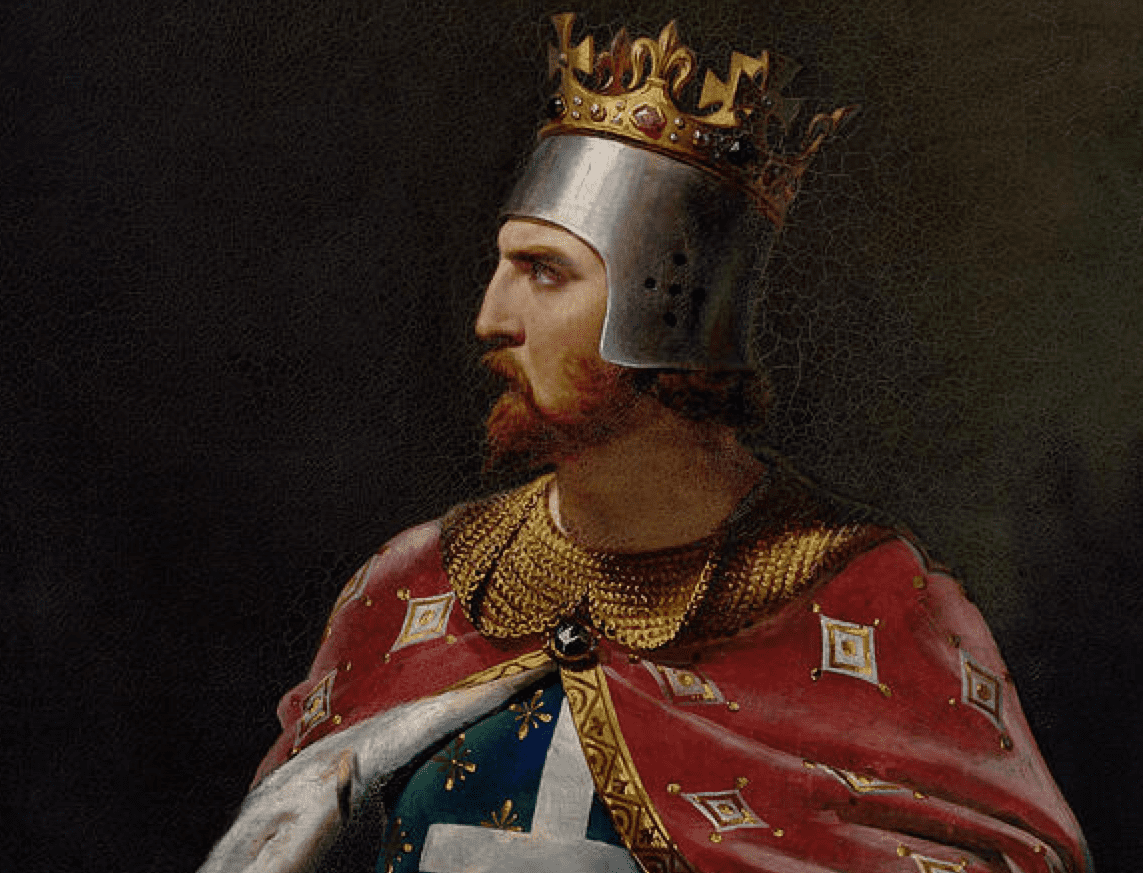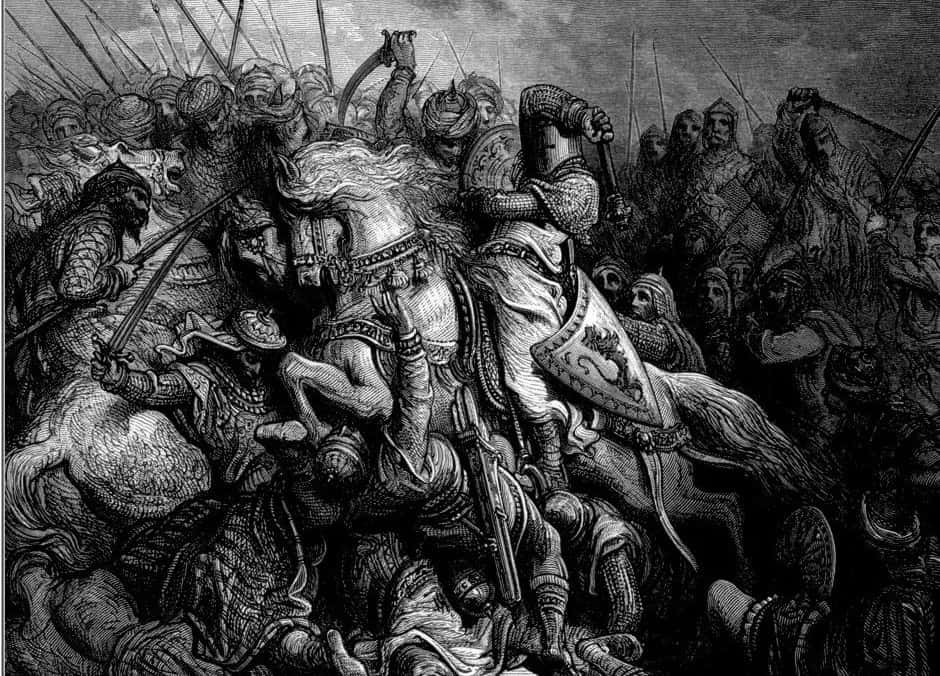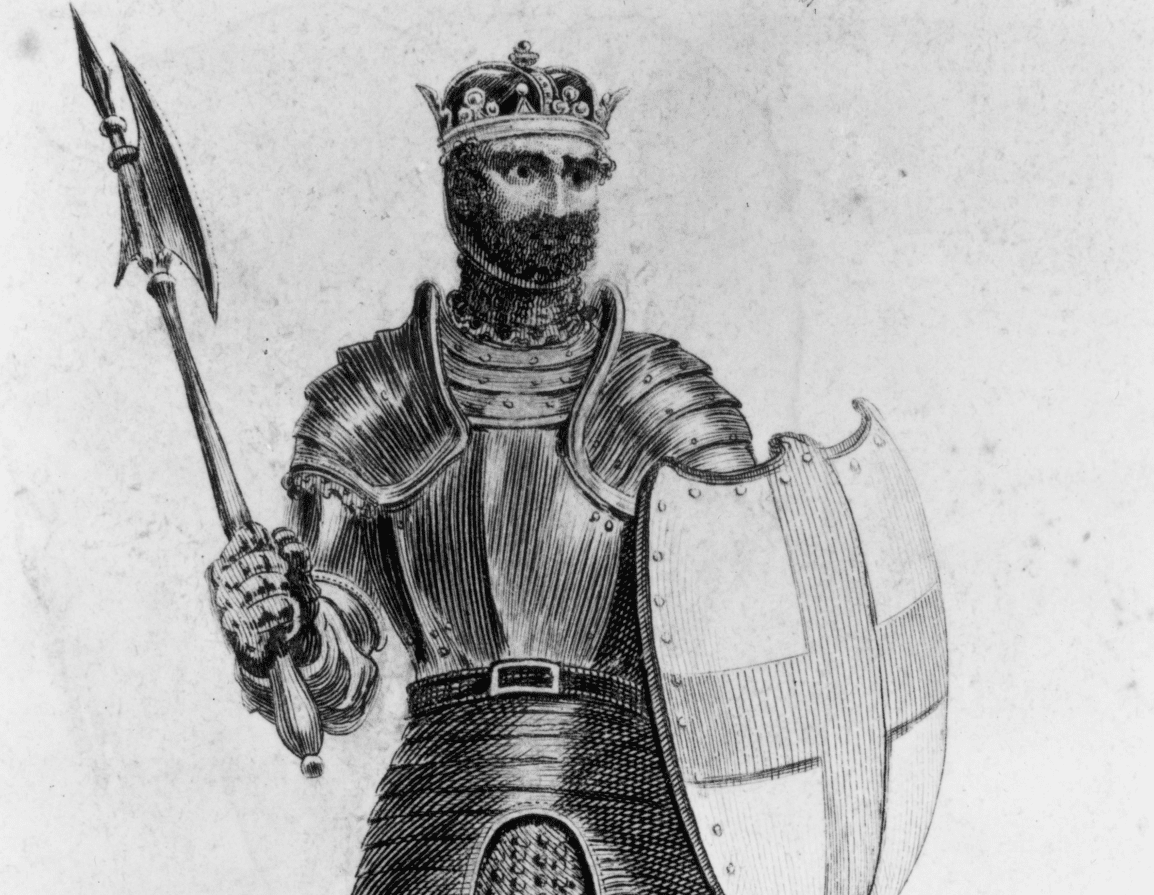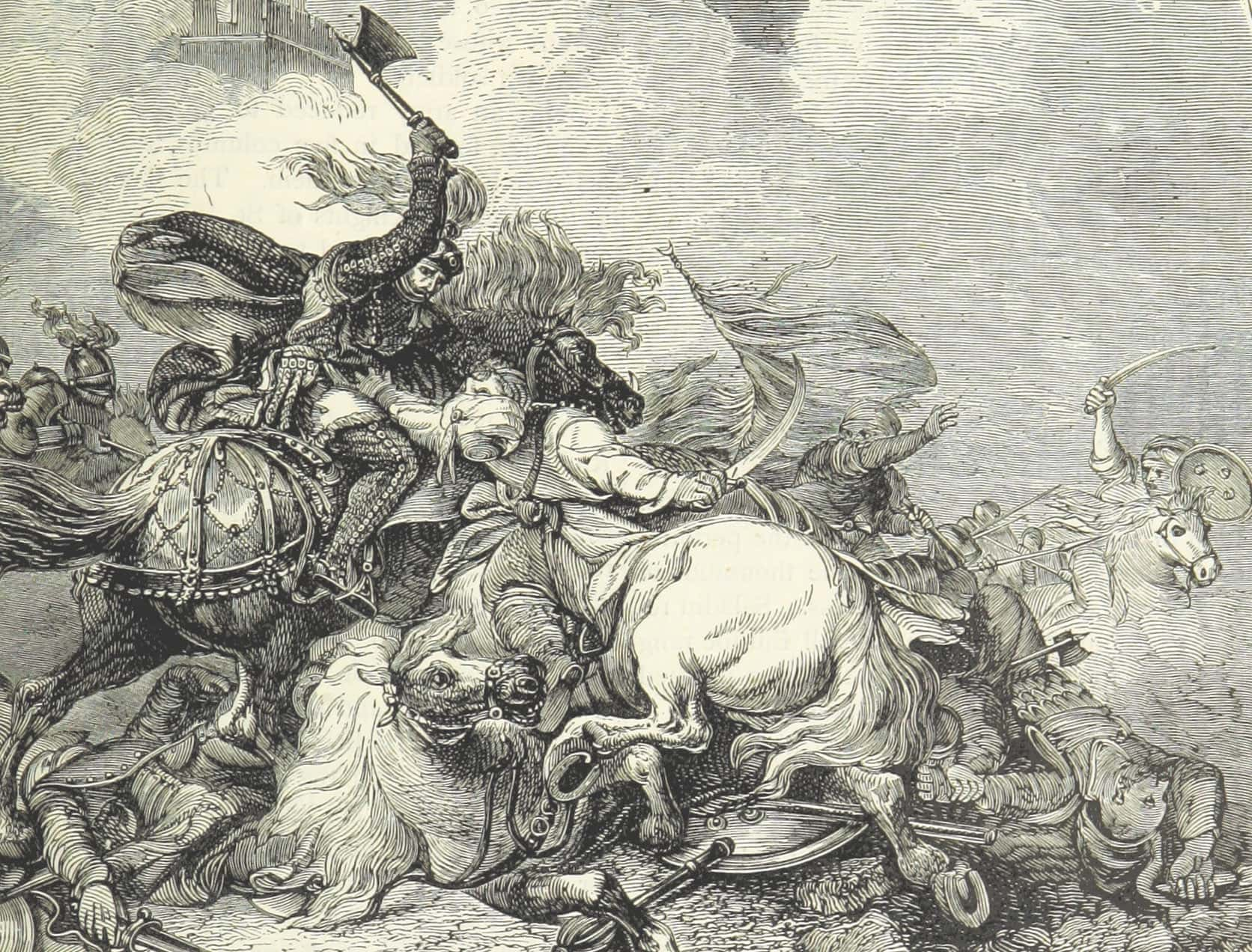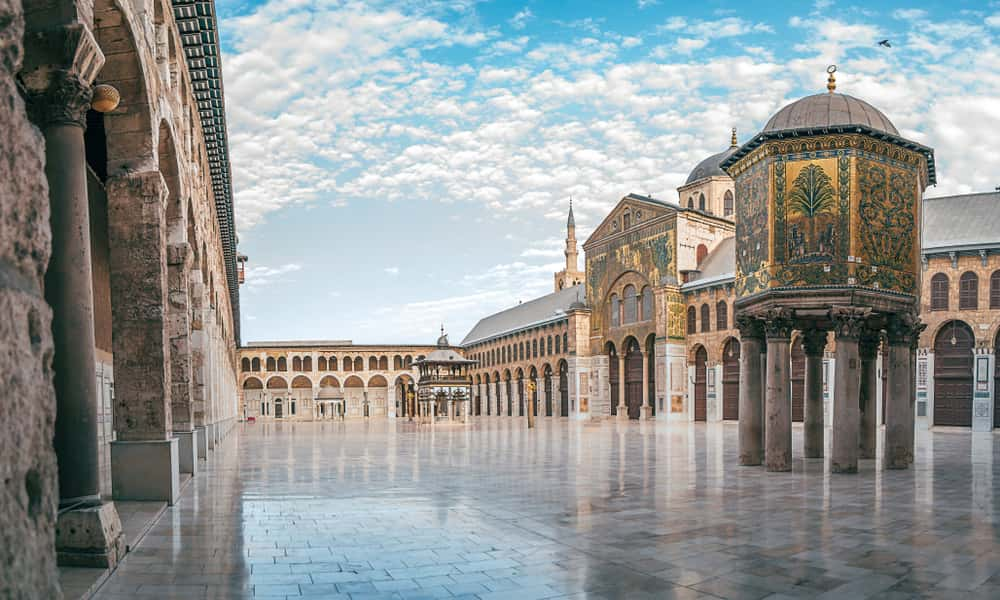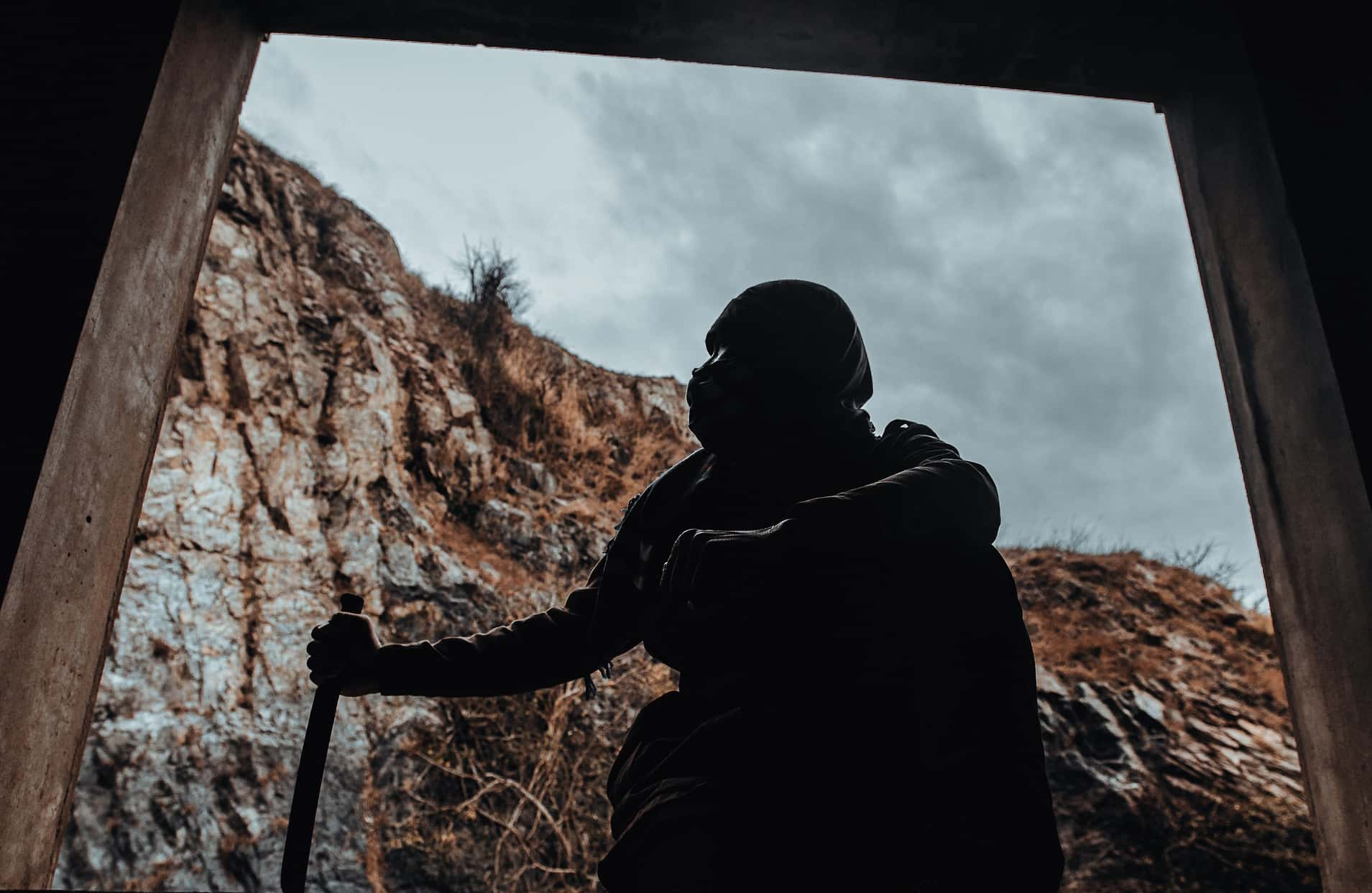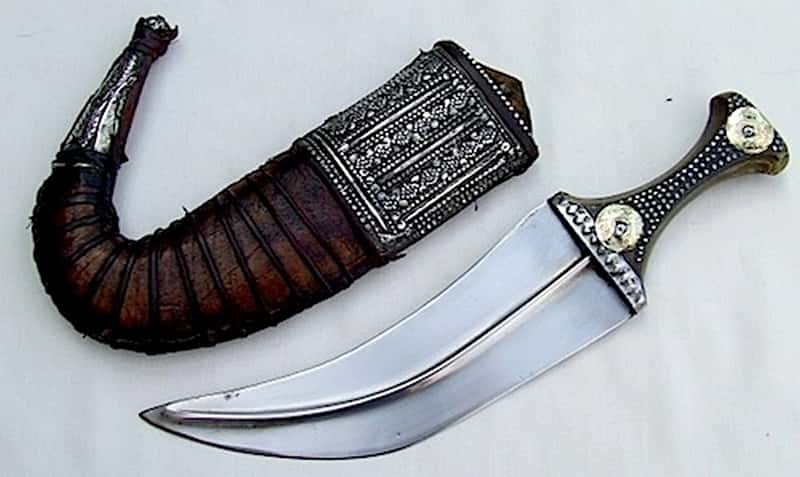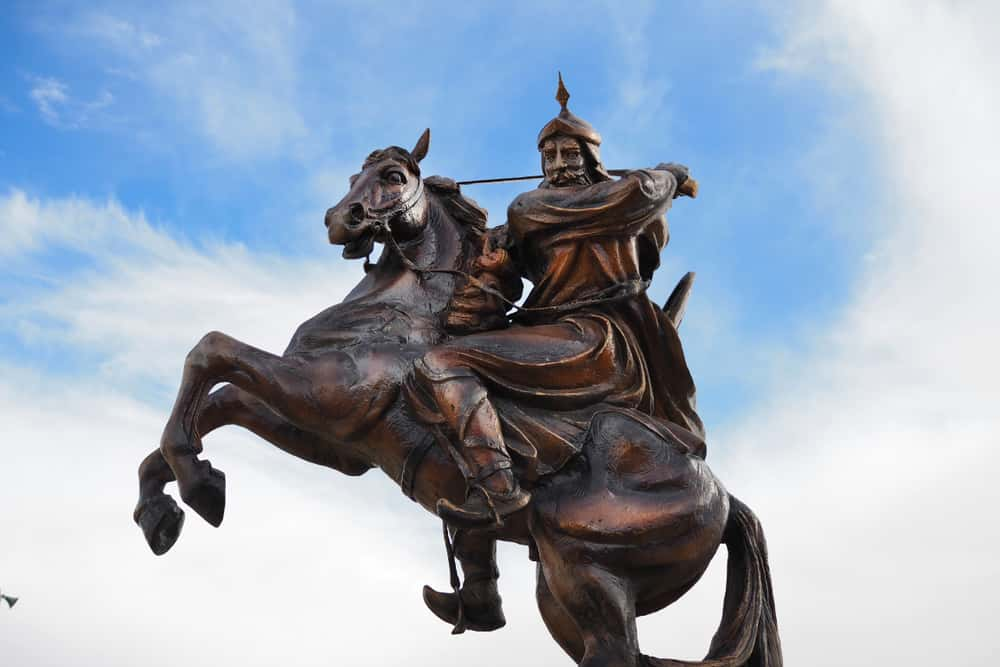Even during the Crusades, Saladin earned a begrudging respect from his European enemies. Starting from almost nothing, he rose through the ranks to become one of the most legendary generals in the history of the Middle East. His merciful nature and tactical brilliance made him a hero—but the Crusades were a dark time, when even heroes were utterly ruthless. Discover the dark history of Saladin, the Lionheart's nemesis.
1. He Moved Around a Lot
Saladin was born on the move. Though his father was a warden in the Iraqi city of Tikrit, local authorities banished him from the city after his brother killed one of the governor's friends. Saladin was born the very night that the family left Tikrit forever, so while the town was his birthplace, it was never his home. Rather, his heart lay in one of the Middle East's great cities.

2. He Always Called Damascus Home
Little is known about Saladin's childhood, but by the time he was a young man, he was living in Damascus, the City of Jasmine, the most beautiful city in Syria. Eventually, the young man had to leave the metropolis he so loved—but fate would bring him back before long.
3. He Lived in a Brutal Time
Saladin was one of the greatest generals in history, but he showed little interest in combat as a young man. He was far more interested in mathematics, law, and religion, but there was one problem: He was born after the First Crusade, when Christian armies had taken Jerusalem. Whether he liked it or not, he would be forced to take up the sword before long.
4. He Started Fighting as a Young Man
Saladin couldn't study religion and philosophy forever—eventually, he was called to arms. At 26 years old, the ruler of Damascus, Nur ad-Din, sent Saladin's uncle, a prominent general, to assist an ally in Egypt. Saladin tagged along for the expedition, completely unaware that it would change his life forever.
5. His Army Had Ulterior Motives
Though Saladin and his fellow Damascans entered Egypt on the pretense of helping an ally, they may have had more ambitious plans in mind. They succeeded in restoring the ally to power, but then when he asked them to leave, they refused. It seemed as though Nur ad-Din had greater plans in store for Egypt, and pretty soon, the entire campaign got a whole lot more interesting.
6. He Met His Greatest Enemies
One minute, Nur ad-Din's army was helping the vizier of Egypt—the next, they found themselves under attack from that same man. And, to make matters worse, the vizier had allied with a group of European Crusaders. Saladin met the Christians on the field for the first time in that battle—but it was far from the last.
7. He Got Off to a Good Start
Nur ad-Din's army, including Saladin, fought the Crusader/Egyptian force at the now-legendary Battle of al-Babein. In what one scholar claimed was one of "the most remarkable victories in recorded history," the Damascans laid an ingenious trap for their enemies, sprung it, and walked away victorious against all odds. Suddenly, Saladin found himself fighting a war—one that would put him on the path to greatness.
8. He Was in the Right Place at the Right Time
When he entered Egypt, Saladin was pretty much a nobody; a soldier in an army led by his uncle—but things can change extremely quickly. After five years fighting in Egypt, the entire country was thrown on its head in a matter of months. First, Saladin had his greatest enemy, the vizier of Egypt, assassinated. Not long after that, his uncle passed as well. A power vacuum had formed, and Saladin was quick to take advantage.
9. People Underestimated Him
In a shocking move, the ruler of Egypt, al-Adid, selected none other than Saladin as his vizier. That's despite the fact that it was Saladin himself who had the last vizier put to the sword. Allegedly, al-Adid's advisors told him that "there is no one weaker or younger" than Saladin. Al-Adid assumed that the youthful Saladin would simply be a useful puppet—but he couldn't have been more wrong.

History's most fascinating stories and darkest secrets, delivered to your inbox daily.
10. He Had a Target on His Back
Suddenly, Saladin found himself with more power than ever before, and he wasn't about to let it go to waste. He took his role as vizier extremely seriously—and he made many enemies in the process. Mere months after his inauguration, Saladin uncovered a plot on his life, orchestrated from within his own palace. However, the conspirators were about to learn the hard way that Saladin was no easy target.
11. He Had Eyes Everywhere
Saladin had a complex intelligence network in Egypt, and he uncovered the plot on his life before it came to fruition. He quickly captured the lead conspirator and had the man executed. It sent a message to anyone who questioned his authority—but Saladin's problems were only beginning.
12. He Fought Rebellions
The day after Saladin put down the conspiracy against him, something far worse happened. Yes, Saladin was vizier, but many Egyptians couldn't forget this was the same man who had fought against them for years. An army of 50,000 men rose up in revolt against him, but even that wasn't enough to wrest Saladin from power.
He quickly and decisively put down the revolt, and after that tumultuous first year, no one in Egypt ever dared to rise up against him again.
13. He Was Prepared for a Fight
Saladin's early years in Egypt were like living in a snake pit, and it deeply affected him. Aware that threats could be lurking behind any corner, he took to wearing chain mail underneath his robes at all times.
14. He Played the Game of Thrones Well
The Caliph of Egypt, al-Adid, made Saladin his vizier because he thought he could easily control the young man, but he was severely mistaken. Saladin was still loyal to his lord back in Damascus, and he set about undermining the Caliph's power at every turn. Many Egyptian lords still distrusted Saladin—and he made them pay for it. While vizier, Saladin had many of these dissenting lords secretly executed.
When al-Adid asked why all of these men suddenly turned up dead, Saladin simply told him that they had all been traitors. He didn't realize what Saladin was doing until it was too late.
15. He Took Power for Himself
Al-Adid passed not long after Saladin's purge, and by then, there was no one left to stop him. Saladin abolished Caliphate and named himself Supreme Ruler of Egypt. He was doing pretty darn well for a man who wasn't even close to 40 yet—but he didn't let the power go to his head. Even though he had all the wealth of Egypt in front of him, he continued to live a simple life. He gave away almost all of the riches from the Caliph's grand palace and instead chose to live in a small, unadorned house.
Then, two sudden tragedies struck in a matter of months, and his entire world was thrown on its head.
 Kingdom of Heaven (2005), Twentieth Century Fox
Kingdom of Heaven (2005), Twentieth Century Fox
16. He Experienced Terrible Loss
Saladin suffered two heartbreaking losses in the span of a year. First, his father lost his life in a horse-riding accident. Then, eleven months later, his lord and mentor, Nur ad-Din of Damascus, fell ill and passed as well. These events struck Saladin like an earthquake, but they also provided an opportunity. For the first time in his life, Saladin was completely free to do whatever he chose—and this is when he really started to make waves.
17. He Had Egypt—But He Wanted More
Though Saladin was in a prime position to remain in Egypt and continue growing his power, his heart never laid on the Nile. He dreamed of Damascus, and suddenly, the opportunity to return to his home appeared. A powerful emir from Aleppo decided the time was ripe to form an empire, and he set about conquering all nearby cities—starting with Damascus. The city's forces were outmatched and they needed help, so they turned to Saladin.
18. He Reclaimed His Home City
Saladin leaped at the opportunity to return to his beloved Damascus. He'd been considering annexing the city himself anyway, but he realized it would look bad if he outright conquered the city once led by his mentor. So imagine how happy he was when the rulers of Damascus invited him and his army through the gates! After a long trek through the desert, Saladin finally returned to his home city—he would never let it go again.
19. He Came, He Saw, He Conquered
While Nur ad-Din had ruled, Damascus controlled many nearby cities, many of which revolted once he was gone. That all changed when Saladin strolled back into town. As soon as he arrived, he ventured out into the country and conquered every city that rebelled against him.
20. He Mad Powerful Men Very Angry
Although Saladin was busy carving up Syria for himself, he still had dangerous enemies who wanted him dead. The emir of Aleppo, a man named Gumushtigin, realized that Saladin was quickly becoming a massive threat. Running out of options, Gumushtigin went to truly desperate lengths to try and deal with Saladin once and for all.
 Dirilis: Ertugrul (2014–2019), Tekden Film
Dirilis: Ertugrul (2014–2019), Tekden Film
21. He Dealt With the Assassins
Gumushtigin sought out the infamous Order of Assassins to remove Saladin from the picture. The Assassins had already run afoul of Saladin, so they didn't take much convincing. A group of them snuck into Saladin's camp one night, intent on ending him in his sleep—but they underestimated Saladin's men.
Saladin's guards discovered the Assassins in their midst and cut them down before they could reach their prey, though that wouldn't be the last time Saladin and the Assassins would cross paths...
22. His Enemies Gathered
Saladin's conquests in Syria started drawing a lot of attention—and none of it good. The ruthless Saif al-Din of Mosul, ruler of the formidable Zengid Dynasty, believed that all of Syria ought to belong to him. He wasn't happy when this upstart general out of Egypt started taking it all away from him. He sent a massive force to back up the armies of Aleppo, and soon, the combined might of Aleppo and Mosul marched against Saladin.
What followed was one of the most defining moments of Saladin's life.
23. He Tried The Easy Way First...
Saladin wasn't stupid. He realized that his small force shouldn't stand a chance against the grand army in front of him. He tried to make peace with the Zengids by giving up all the territory he'd conquered north of Damascus. They refused his terms and told him to put Syria in the rearview and return to Egypt. Soon, Saladin would make them regret their decision.
24. ...But They Chose the Hard Way
Though the armies of Mosul and Aleppo had the numbers, Saladin's men were battle-hardened veterans. They demolished the larger force, and chased it all the way back to the walls of Aleppo. The Zengids admitted defeat, and Saladin forced them to acknowledge his control over all the lands he'd conquered. Damascus, and most of Syria with it, was his.
Saladin declared himself "Sultan of Egypt and Syria," and by this point, who was left to stop him?
25. A New Enemy Appeared
By 1179, Saladin had spent most of his life fighting against other Muslim powers, but now that he had finally taken Syria for himself, he discovered a new enemy: Crusaders. Soon after he proclaimed himself Sultan, he got word that Christian armies had plans to invade Syria. King Baldwin of Jerusalem decided to expand his territory and set his sights on Damascus—but he didn't count on Saladin.
 Kingdom of Heaven (2005), Twentieth Century Fox
Kingdom of Heaven (2005), Twentieth Century Fox
26. He Prepared for the Worst
When he heard about the Crusader plot, Saladin sent one of his generals to guard their borders. He made use of a system of warning beacons on high hills, so that word of a Christian invasion would quickly reach the city. His preparations paid off, because soon enough, King Baldwin's men appeared on the horizon.
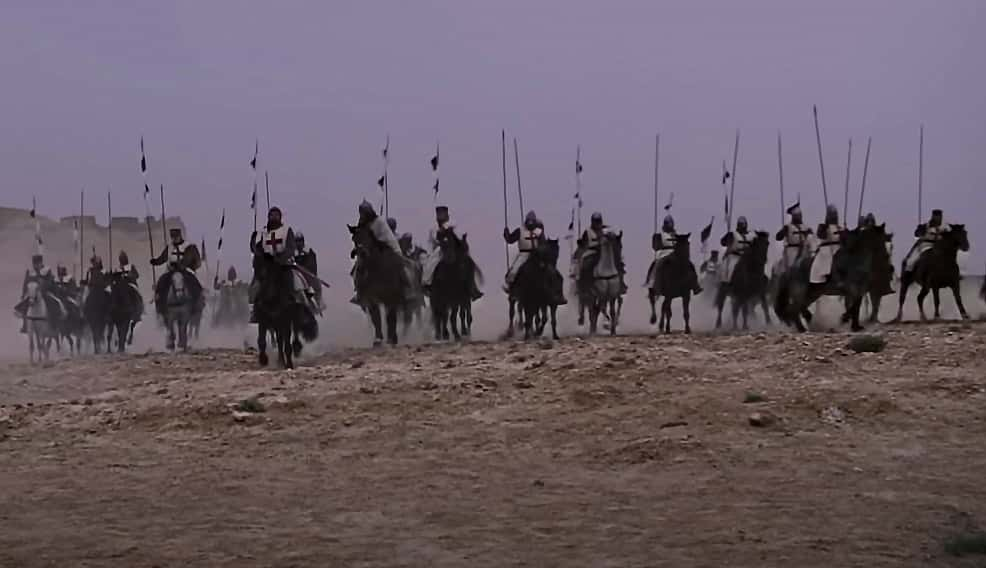 Kingdom of Heaven (2005), Twentieth Century Fox
Kingdom of Heaven (2005), Twentieth Century Fox
27. The Fight Begins
Baldwin entered Syria, completely unaware that Saladin knew he was coming. He launched an attack on Muslim farmers, only to find Saladin's men upon him in an instant. The Syrians routed the Crusaders and sent them packing—but the fight was just the beginning.
 Kingdom of Heaven (2005), Twentieth Century Fox
Kingdom of Heaven (2005), Twentieth Century Fox
28. He Always Looked for a Peaceful Option
Although Saladin was a brilliant tactician, he almost always sought to avoid bloodshed. He even offered Baldwin 100,000 gold pieces to leave Syria alone, but the Crusader King refused. However, as we've learned, people who refuse peace offerings from Saladin tended to regret it...
 Kingdom of Heaven (2005), Twentieth Century Fox
Kingdom of Heaven (2005), Twentieth Century Fox
29. ...But He Was Ready To Fight When He Had To
Baldwin set up a fortress outpost near Damascus, but his plan failed spectacularly. When Saladin approached the fortification, the Christians charged out to meet him—what they lacked in brains, they made up for in fervor. The Syrian armies feigned a retreat...and the Crusaders fell for the trap hook, line, and sinker.
 Kingdom of Heaven (2005), Twentieth Century Fox
Kingdom of Heaven (2005), Twentieth Century Fox
30. He Sprung His Trap
The Christians chased their fleeing enemy, sure of their victory. The problem was, they spread themselves thin in the process. At the right moment, Saladin had his men turn around and charge the scattered Crusaders. The plan worked perfectly, and Saladin walked say with a massive victory.
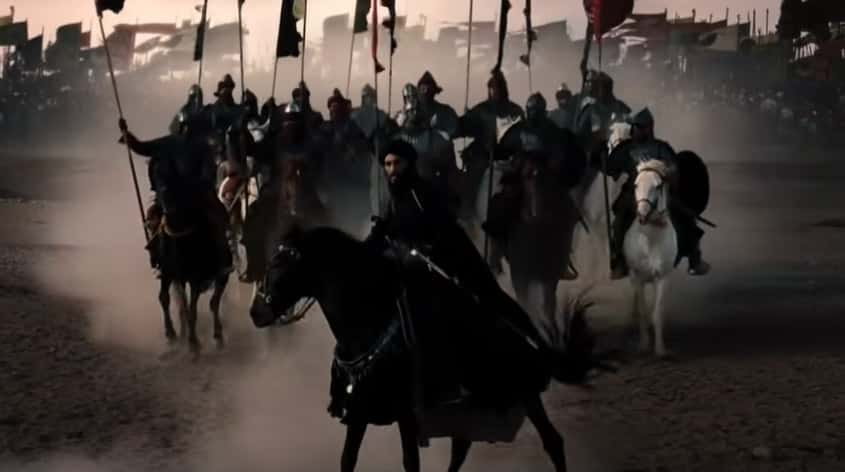 Kingdom of Heaven (2005), Twentieth Century Fox
Kingdom of Heaven (2005), Twentieth Century Fox
31. His Enemy Waved the White Flag...For Now
For once, someone actually learned their lesson after Saladin embarrassed them on the field. Realizing that he didn't stand a chance, King Baldwin gave up the fight and sent peace terms to Saladin. A vengeful man might have laughed at the offer and come down on the Kingdom of Jerusalem like a hammer—but not Saladin. He gracefully accepted the peace, and with that, he enjoyed the first period of calm since he left Damascus all those years ago.
But peace was never an option for long during the Crusades, and soon enough, Saladin would find himself called to battle once again.
 Kingdom of Heaven (2005), Twentieth Century Fox
Kingdom of Heaven (2005), Twentieth Century Fox
32. He Treated the People He Conquered Well
Saladin made many enemies in his years on campaign—but he made a lot of allies too. Often, when Saladin conquered a city, he actually made life better for the citizens. Take Saladin's seizure of Raqqa, an important city on the Euphrates river. After taking the city, Saladin's first act was to cancel several taxes. He told the people of the city, "the most miserable rulers are those whose purses are fat and their people thin".
No wonder that after Raqqa, he managed to take six other nearby cities, all while barely raising a sword. But dark days were coming...
33. He Lost Control
While out conquering through Syria, Saladin's forces came to the city of Sinjar. After a 15-day siege, the city finally fell, but something was different this time. When Saladin's usually disciplined soldiers entered Sinjar, they went on a rampage. Saladin watched in horror as his men pillaged and plundered through the city—and the bad news was just beginning.
 Kingdom of Heaven (2005), Twentieth Century Fox
Kingdom of Heaven (2005), Twentieth Century Fox
34. The Crusaders Had Returned
After months spent dealing with rebellions and rivals in Syria, Saladin got a frantic message from back in Egypt. The Crusaders had returned, and this time, they struck at "the heart of Islam". A Frenchman named Raynald de Chatillon sent ships to raid the coast of the Red Sea. The Christians were merciless, burning many Muslim ships, even slaughtering innocent pilgrims. Saladin was alarmed—but he didn't even know the true threat yet.
 Kingdom of Heaven (2005), Twentieth Century Fox
Kingdom of Heaven (2005), Twentieth Century Fox
35. His Enemies Went Too Far
Rumors claimed that Raynald de Chatillon intended to attack Medina itself, the final resting place of Muhammad. Saladin had to act—and he proved that he could be just as ruthless as any Crusader.
 Kingdom of Heaven (2005), Twentieth Century Fox
Kingdom of Heaven (2005), Twentieth Century Fox
36. He Showed No Mercy This Time
Saladin sent his own ships to stop the Crusader fleet, and they put a stop to the Christian raids. The Muslim ships smashed the Crusaders, sinking many and chasing the stragglers down and capturing them. When Saladin's men asked him what to do with the prisoners, the usually merciful leader gave a cold-blooded response: Saladin had every single one of them executed.
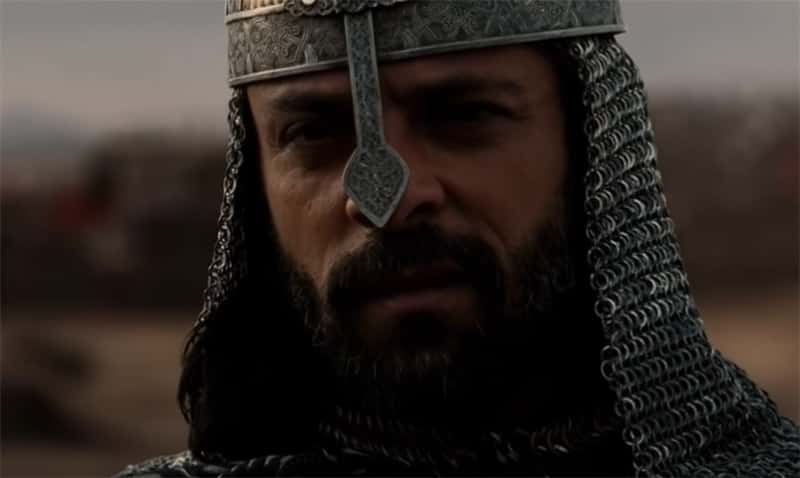 Kingdom of Heaven (2005), Twentieth Century Fox
Kingdom of Heaven (2005), Twentieth Century Fox
37. The Crusaders Brought Out His Dark Side
Fighting against the Crusaders brought out the worst in Saladin. The darkest moment of his entire life came after he captured 300 knights from the Templars and Hospitalers at Tiberias. Once again showing no mercy, Saladin had all of these men ruthlessly executed as well. Though these moments paled in comparison to the countless other atrocities committed during the Crusades, they proved that even a man as even-tempered as Saladin could be pushed too far.
 Kingdom of Heaven (2005), Twentieth Century Fox
Kingdom of Heaven (2005), Twentieth Century Fox
38. His Enemies Teamed Up Once Again...
As many in Syria knew all too well, you did not want to make an enemy of Saladin. He realized that the Crusaders had become a threat to his land and his religion, so Saladin switched to the offensive. By 1187, he had conquered most of the Kingdom of Jerusalem for himself. To stop him, the King of Jerusalem allied with the powerful County of Tripoli. The two Crusader kingdoms brought their combined might against Saladin's forces at the Battle of Hattin. But Saladin had faced worse odds before...
39. ...And He Wiped the Floor With Them
Once again, Saladin's forces completely decimated the Crusaders—but this time, the victory was especially sweet. Saladin managed to capture the hated Raynald of Chatillon, who had spent the last several years raiding Muslim caravans and slaying innocents. Years before, Saladin vowed that he would personally see Raynald put down, and after the Battle of Hattin, he stayed true to his word.
 Kingdom of Heaven (2005), Twentieth Century Fox
Kingdom of Heaven (2005), Twentieth Century Fox
40. He Marched Right to Jerusalem
When the dust settled, there was no one left in the Holy Land who could stop Saladin. He brought his army right to the walls of Jerusalem, but by this point, his bloodlust had cooled. He returned to his once-merciful self and offered generous terms of surrender. However, he underestimated the fervor of those inside. The city's defenders said they would rather see it destroyed than hand it over.
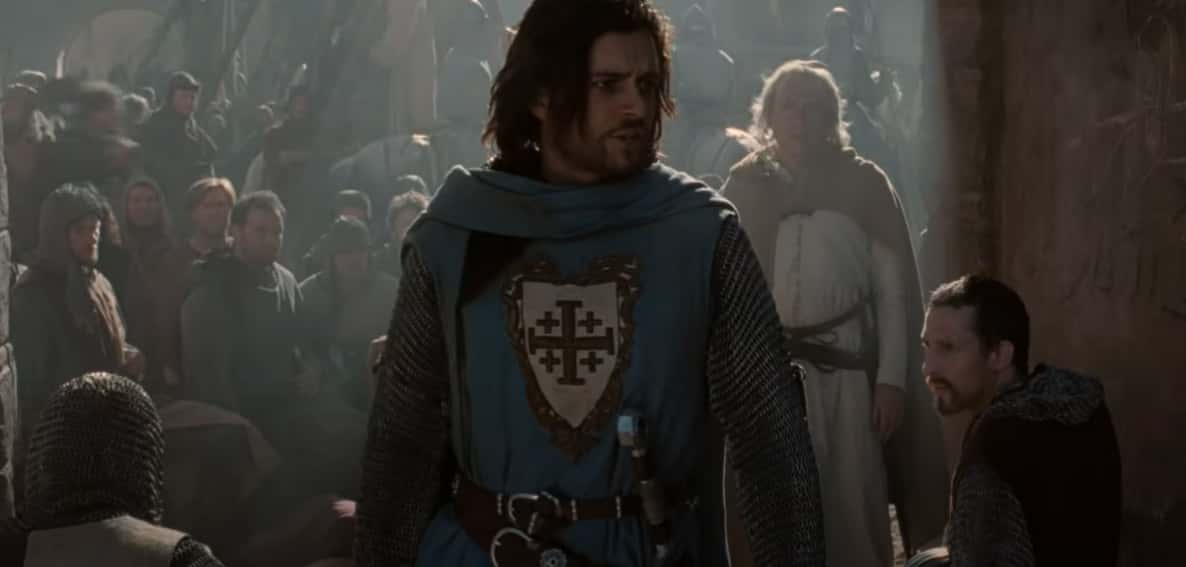 Kingdom of Heaven (2005), Twentieth Century Fox
Kingdom of Heaven (2005), Twentieth Century Fox
41. He Achieved What No Muslim Had for a Century
Despite the defenders' bold words, they eventually surrendered the city after a siege. For the first time in nearly a century, Muslims held Jerusalem. It was a massive victory for Saladin and for Islam—but he wouldn't be able to celebrate for long. His conquest gained a lot of attention, and it ended up bringing the greatest foe he would ever face to the Holy Land.
 Kingdom of Heaven (2005), Twentieth Century Fox
Kingdom of Heaven (2005), Twentieth Century Fox
42. His Victory Had Dark Consequences
The loss of Jerusalem sent shockwaves through the Christian world, and it prompted the infamous Third Crusade. Richard the Lionheart, King of England, personally led new Crusader hordes to the Middle East, where he immediately made his name known. In one of his first moves, he took the city of Acre after a brutal siege. And was he merciful like Saladin? What do you think...
 Kingdom of Heaven (2005), Twentieth Century Fox
Kingdom of Heaven (2005), Twentieth Century Fox
43. Richard the Lionheart Was Utterly Brutal
After taking Acre, Richard slaughtered thousands of prisoners within, women and children included. Lionheart was an enemy unlike any Saladin had faced—and their brutal conflict would go down in history.
44. For Once in His Life, He Lost
Saladin faced Richard for the first time at the Battle of Arsuf, and something remarkable happened: He lost. Saladin's men quickly found themselves suffering heavy losses, and they had to retreat. Though Saladin had beaten just about any army anyone had ever thrown at him, Richard was a new beast entirely.
45. He Was Honorable to the End
There's a reason Saladin became so famous in Europe—even when fighting against someone as vicious as Richard the Lionheart, he still showed amazing chivalry. According to one story, a stray arrow once hit Richard's horse during a battle, killing the animal. Rather than push his advantage, Saladin sent Richard a replacement, along with the message: "It is not right that so brave a warrior should have to fight on foot".
 Kingdom of Heaven (2005), Twentieth Century Fox
Kingdom of Heaven (2005), Twentieth Century Fox
46. The Crusades Almost Ended Very Differently
Richard and Saladin eventually tried to end their conflict peacefully. Richard suggested that they should bury the hatchet by having his sister marry Saladin's brother, with Jerusalem as a wedding gift. It might have worked too, but Richard demanded that Saladin's brother had to convert to Christianity. Saladin refused, the deal fell through, and fighting started up again.
47. They Finally Made a Deal
Richard and Saladin's armies met for the last time at the Battle of Jaffa. Remarkably, after such a brutal campaign, the two sides managed to end things fairly peacefully. Saladin conceded some territory to the Crusaders, he allowed Christian pilgrims to travel to Jerusalem peacefully, and the mortal enemies essentially called it a day. It wasn't the end of the Crusades, and there was plenty more bloodshed to come—but for Richard and Saladin, their conflict was at an end.
48. He Had Many Wives
There is a lot more information about Saladin's conquests than about his personal life. We know he had multiple wives and many children, and that he seemed to care deeply for his family, but few precise details about his relationships survive. But we do know that his marriage to his most famous wife, known as Asimat, was something of a scandal...
49. He and His Wife Had a History
Saladin was not Asimat's first husband. That was Nur ad-Din—Saladin's mentor and the one-time ruler of Damascus! Saladin married her to legitimize his claim to the City of Jasmine, but I can only imagine that was a pretty awkward wedding. It's like the Karate Kid married Mr. Miyagi's wife!
50. He Adored His Wife
By all accounts, Saladin and Asimat had an extremely loving relationship—which only makes its tragic end all the more heartbreaking. Even after a decade of marriage, Saladin continued to write letters to her every single day. However, eventually, he stopped getting responses...
51. Her Loss Was Devastating
Asimat suddenly passed while Saladin himself was sick. His advisors believed that the shock of the news might be too much for him to bear, so they didn't tell him that she was gone for three long months. He continued to write his letters in this time—completely unaware that she could never respond again.
 Kingdom of Heaven (2005), Twentieth Century Fox
Kingdom of Heaven (2005), Twentieth Century Fox
52. The Assassins Weren't Finished With Him
Long before the conquest of Jerusalem and the conflict with Richard of England, Saladin faced one of the darkest threats of his life. Remember how he had run afoul of the infamous Assassins? Well, they didn't stop at just trying to kill him once. The first time they tried, their men didn't make it far, but the second time was a different story...
53. He Fought Off an Assassin Himself
Not long after the first attempt on Saladin's life, another assassin rushed him with a knife while he was resting alone in a captain's tent. Saladin barely managed to grab the man's arm before the blade plunged into him. After a struggle, Saladin managed to get the upper hand and kill his assailant—but the attack shook him to his core.
The Assassins had become too big of a threat to ignore, so Saladin decided to take the fight to them personally.
54. His Most Chilling Enemies
The Order of Assassins, led by Rashid ad-Din Sinan, based themselves out of nine fortresses built high in the an-Nusayriyah Mountains. From there, they were free to influence world affairs with subterfuge and espionage. They saw Saladin as a threat, and they made sure he knew they meant business...
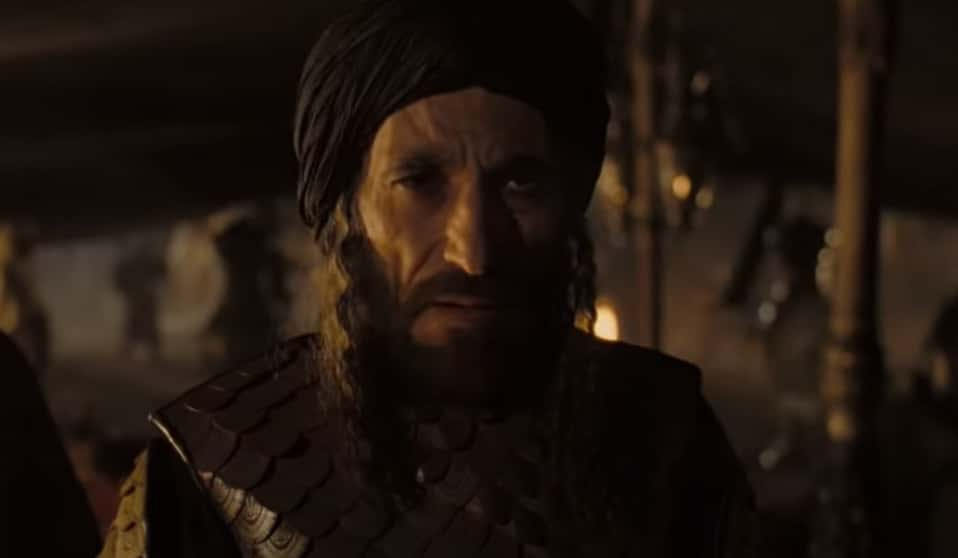 Kingdom of Heaven (2005), Twentieth Century Fox
Kingdom of Heaven (2005), Twentieth Century Fox
55. They Left a Message
According to one story, the Assassins made their way into Saladin's inner circle again. One night, the Sultan awoke from a deep sleep to find a shadowy figure hurrying out of his tent. When he stood to make chase, he found a chilling message on the floor: hot coals, placed in the shape of the Assassin's symbol. Right in the middle, there was a note, pinned down with a poisoned dagger...
56. He Didn't Listen
The ominous note contained a simple threat: give up the fight against the Assassins, or face the consequences. Now, if I were Saladin, I would have screamed like a child and gotten the heck out of there—but clearly, I am not Saladin. Saladin pressed forward, and as always, he had a plan...
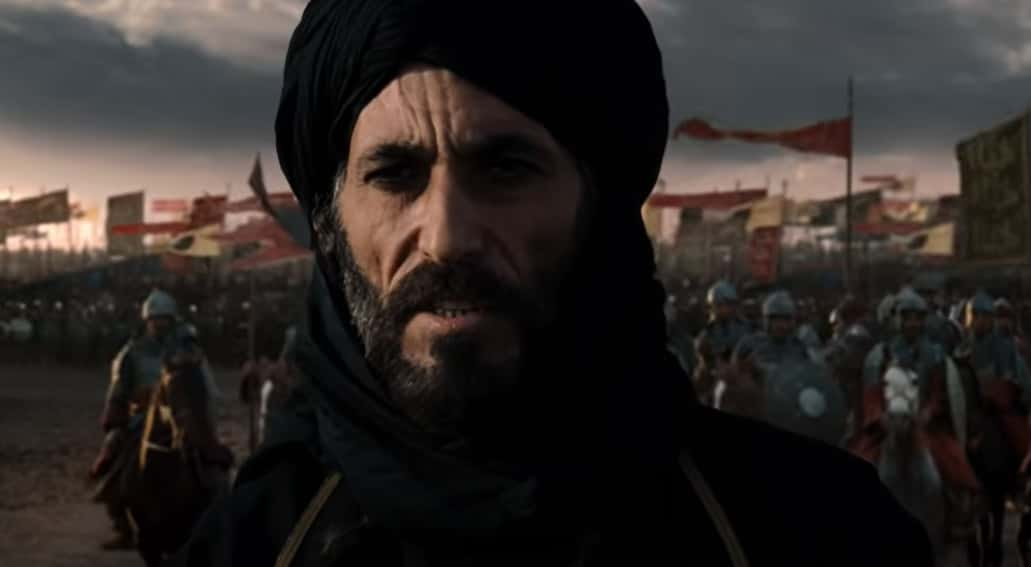 Kingdom of Heaven (2005), Twentieth Century Fox
Kingdom of Heaven (2005), Twentieth Century Fox
57. He Appealed to Logic
Even though the Assassins wanted him dead, Saladin knew a powerful ally when he saw one. Rather than risk everything by trying to storm the Assassins' mountain fortresses, he appealed to simple logic: the enemy of my enemy is my friend. Around this time, the Crusaders had been getting more and more bold, presenting a greater threat than ever before—and that gave Saladin an idea...
 Kingdom of Heaven (2005), Twentieth Century Fox
Kingdom of Heaven (2005), Twentieth Century Fox
58. He Made a Friend of a Foe
Saladin convinced the Assassins that they would both benefit by getting rid of the Crusaders. Now, instead of trying to kill him, he actually gained a key ally in the fight against the Christian armies.
 Kingdom of Heaven (2005), Twentieth Century Fox
Kingdom of Heaven (2005), Twentieth Century Fox
59. He Died in the City He Loved
Saladin put everything into his brutal fight against Richard the Lionheart, and he didn't last much longer after that. After Richard set sail back for Europe, Saladin returned to his beloved Damascus to catch his breath. Soon after arrived, he fell ill with a fever and never recovered. He passed peacefully on March 4, 1193. He was 56 years old.
 Kingdom of Heaven (2005), Twentieth Century Fox
Kingdom of Heaven (2005), Twentieth Century Fox
60. He Was Penniless by the End
Though he conquered untold territory, Saladin had little interest in the material gains of his conquest. He gave away almost every single cent he ever earned—which left him in a strange position upon his end. When he took his last breath, he possessed exactly one piece of gold and forty pieces of silver. It wasn't even enough to pay for his funeral.

